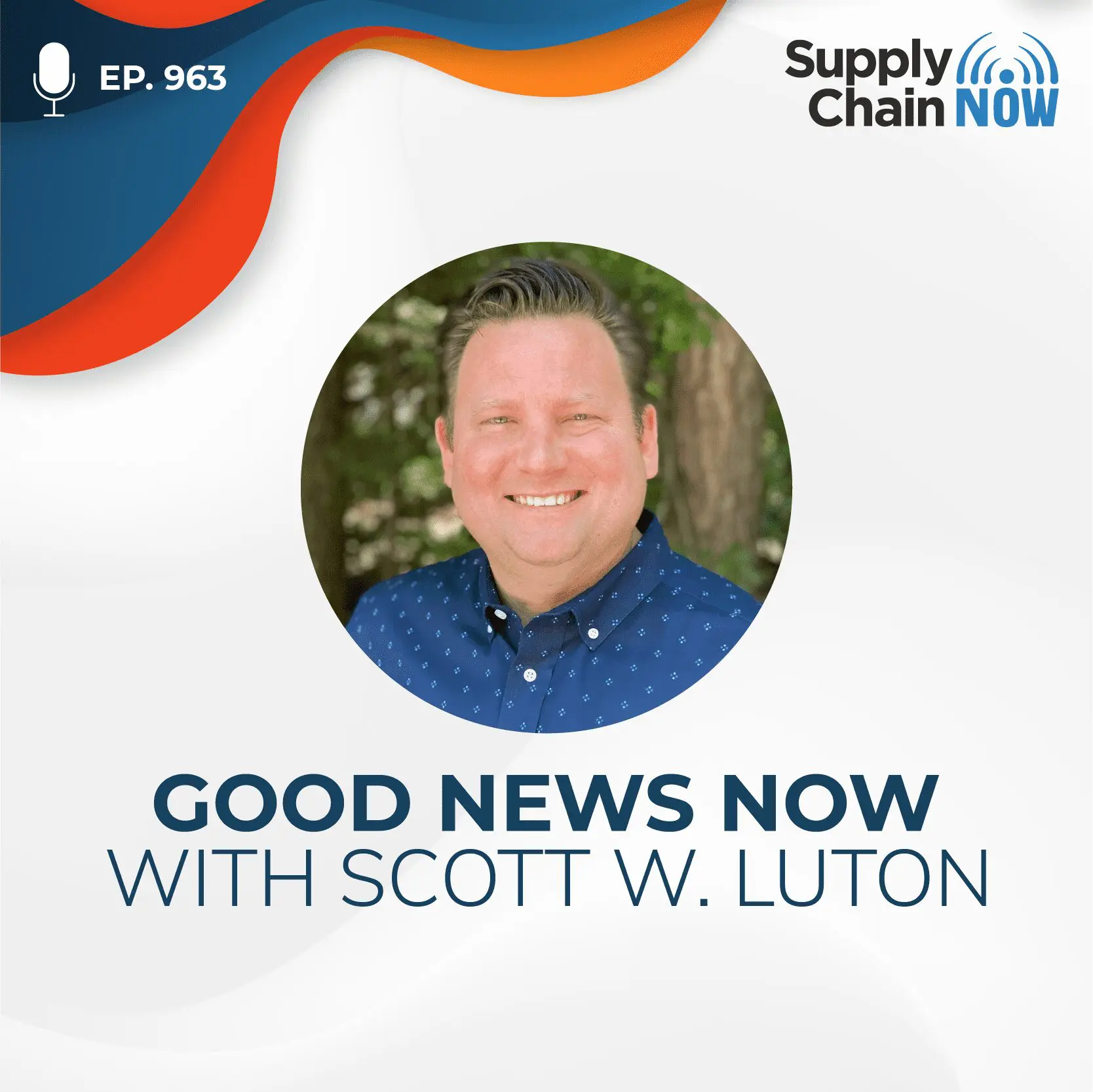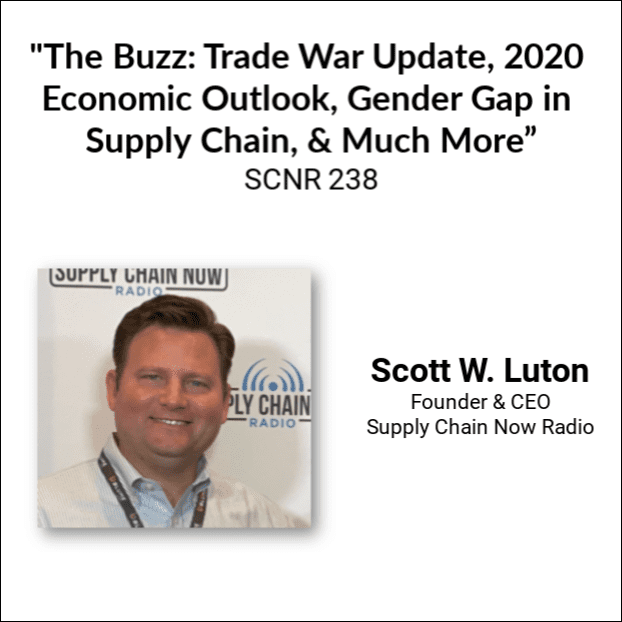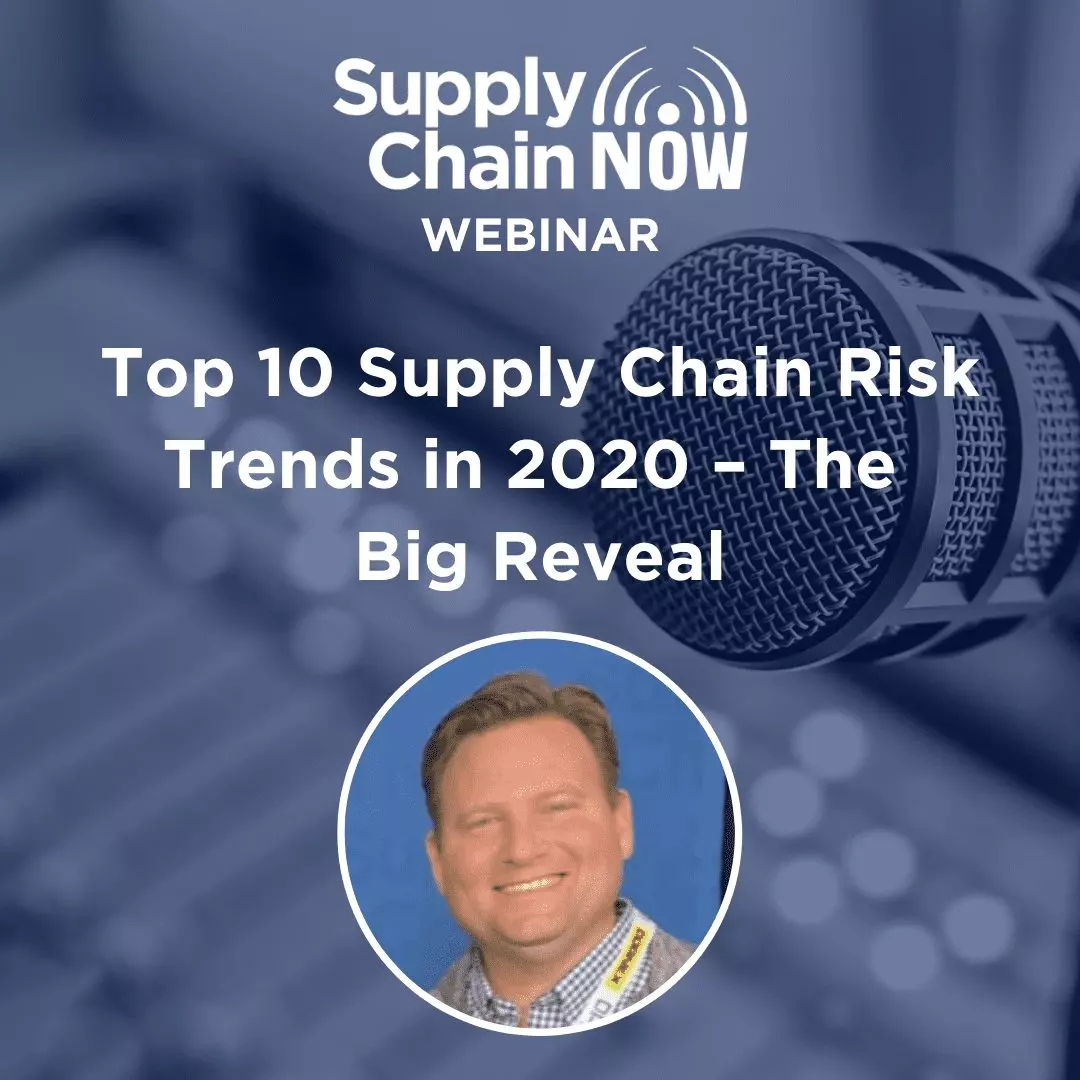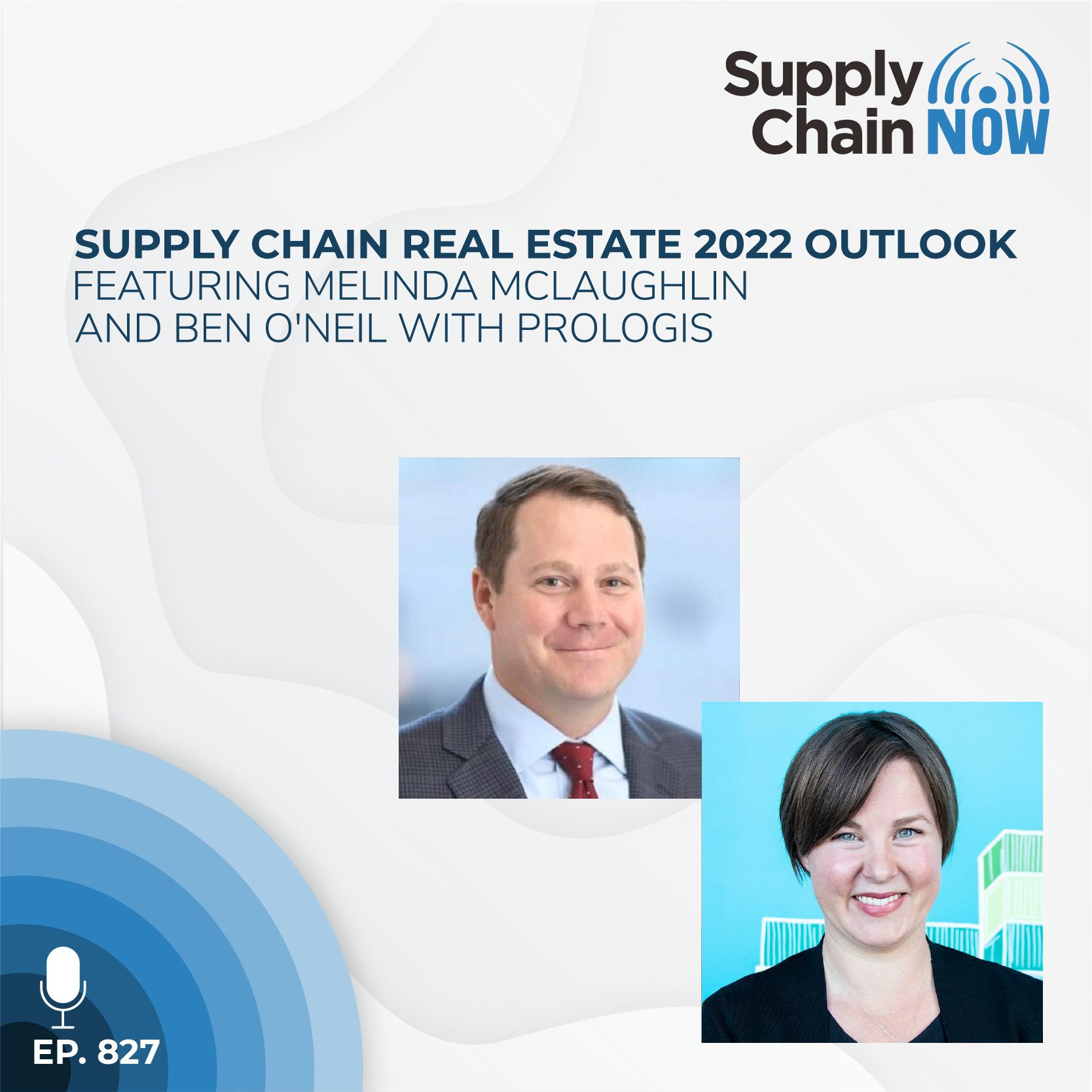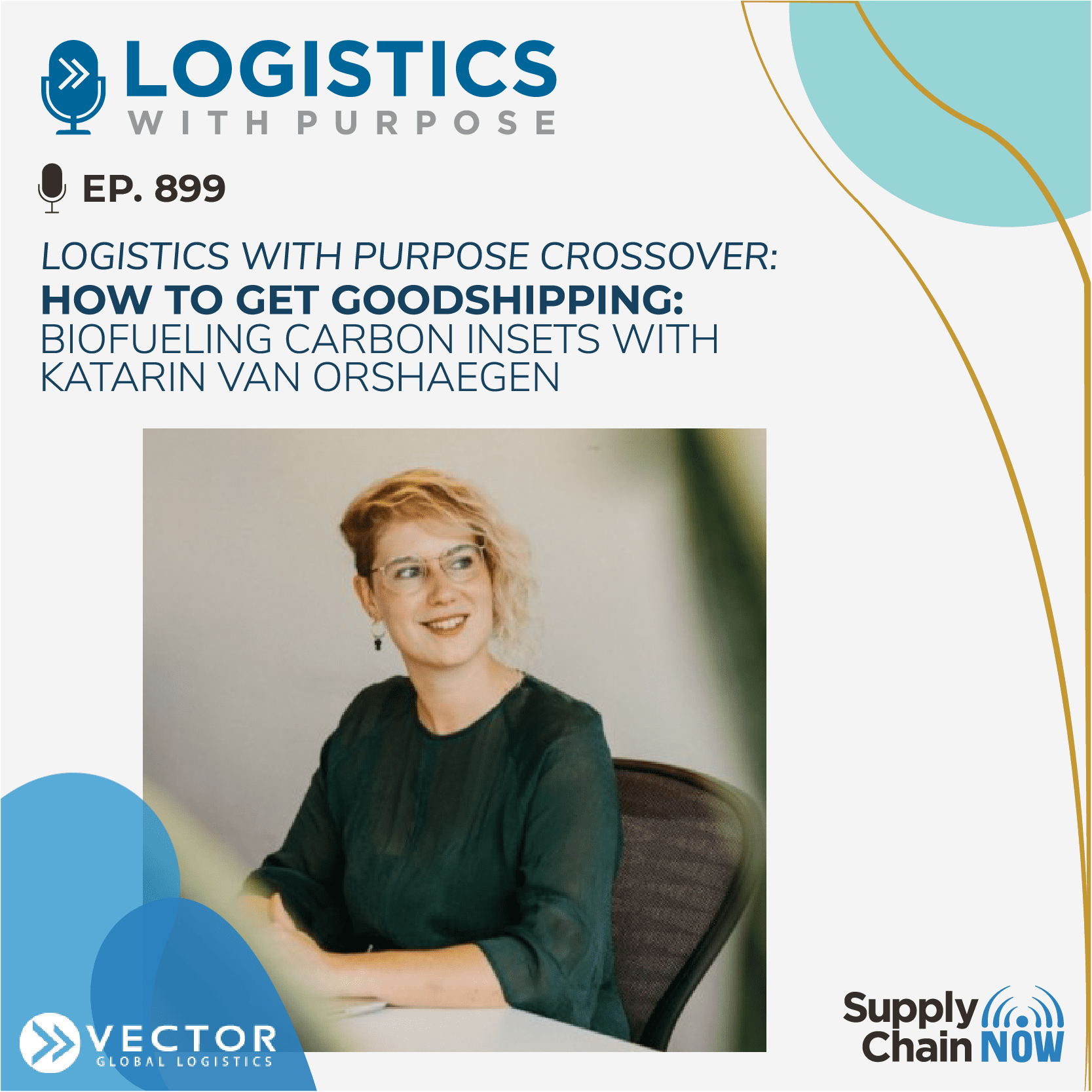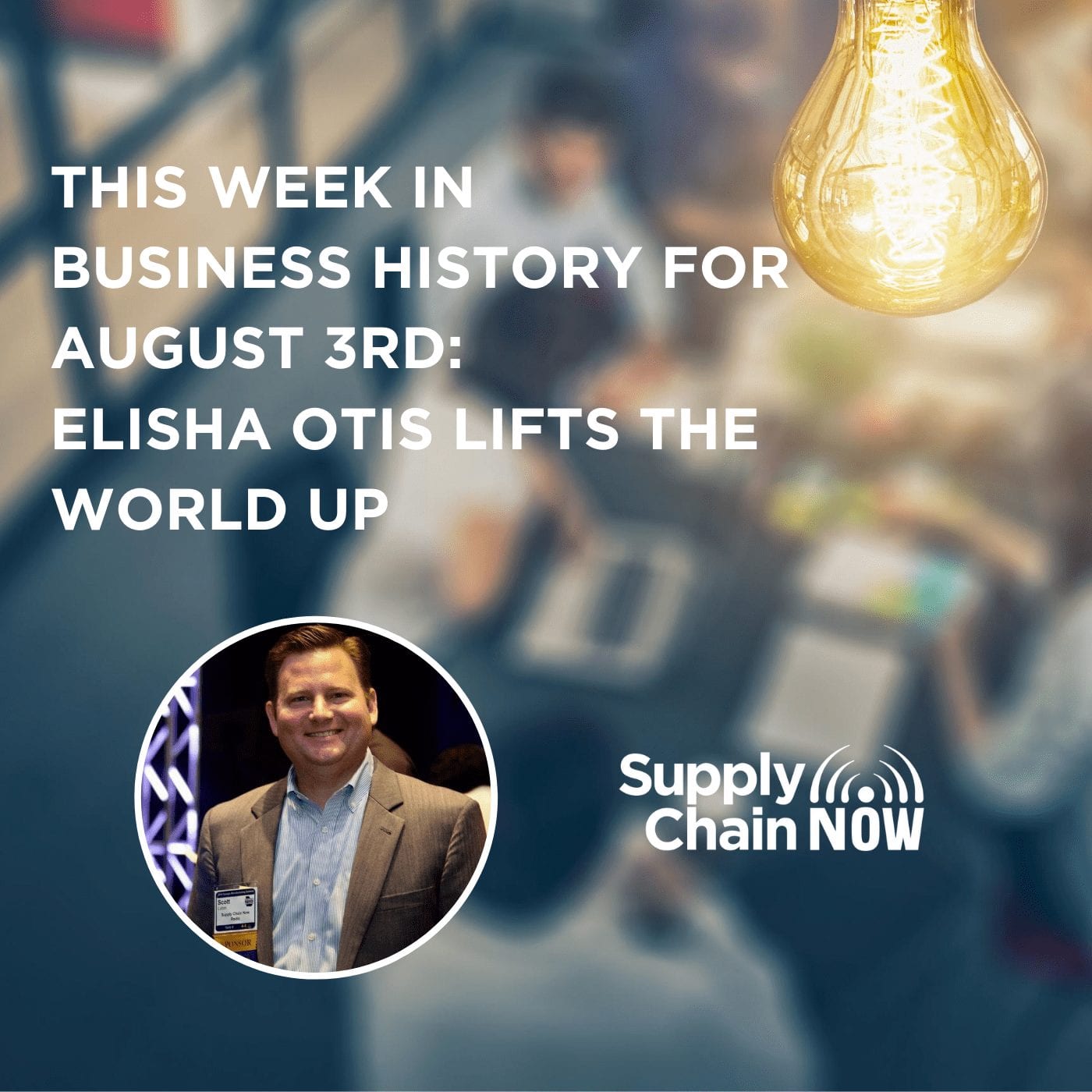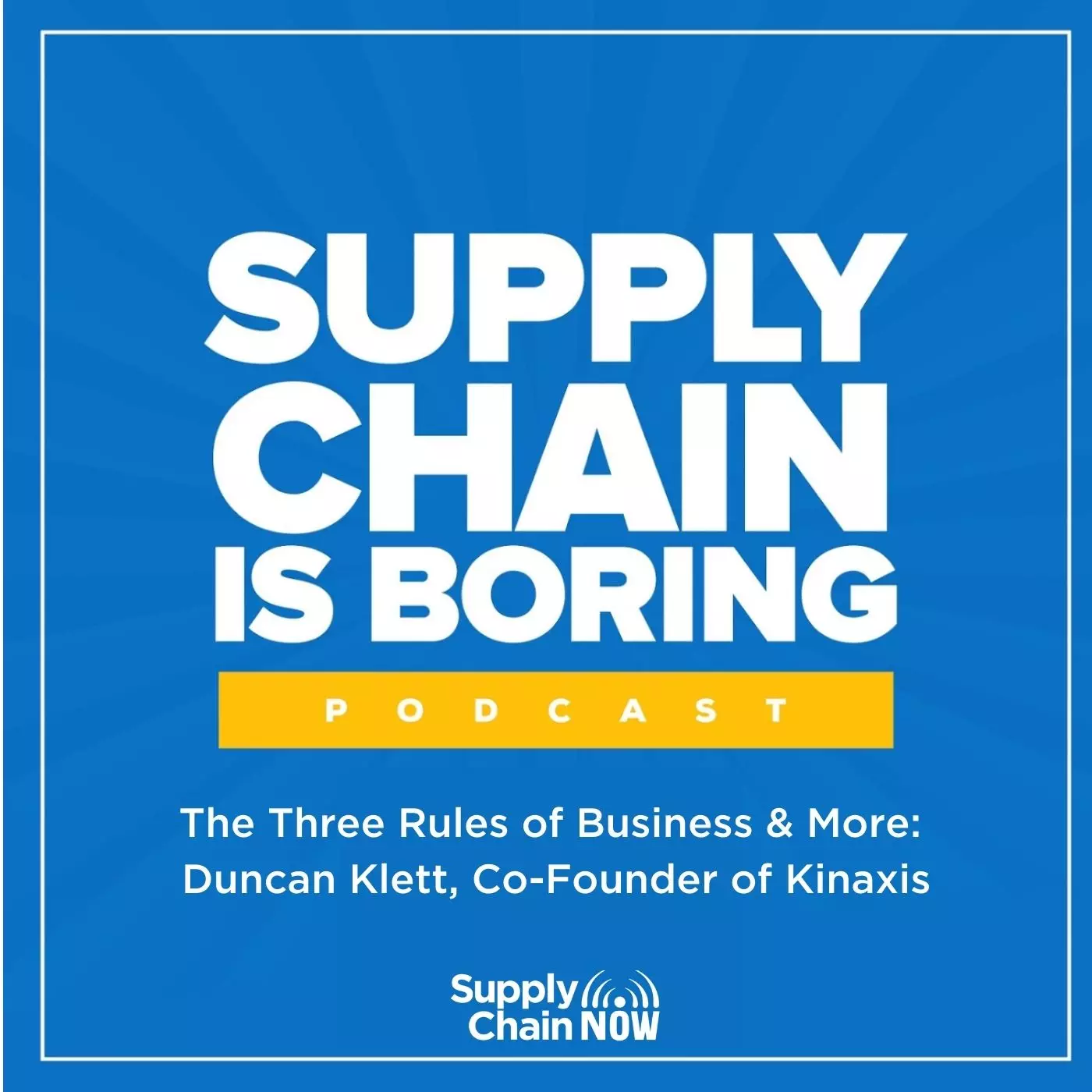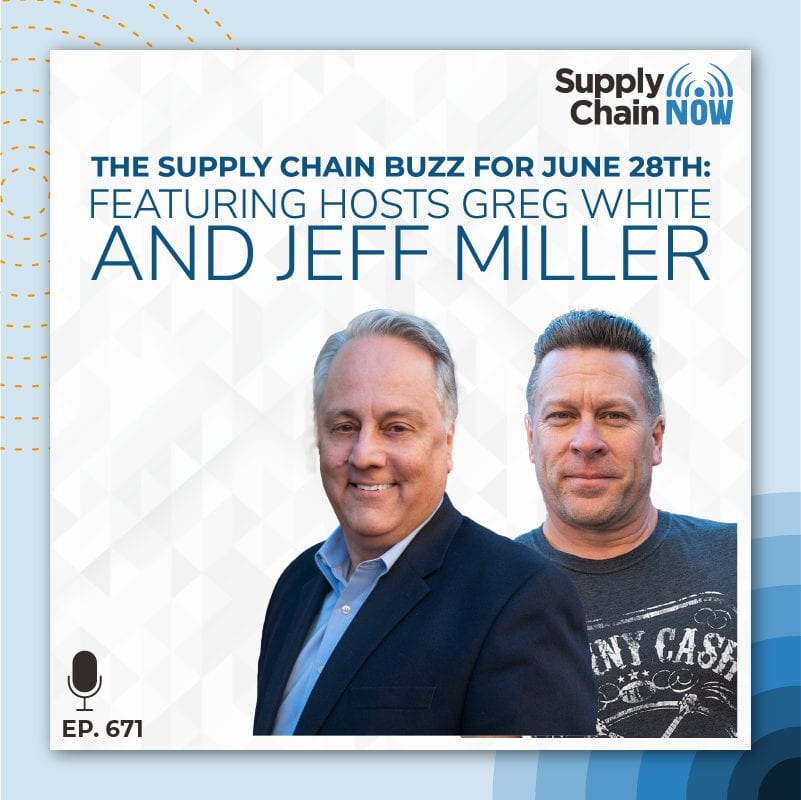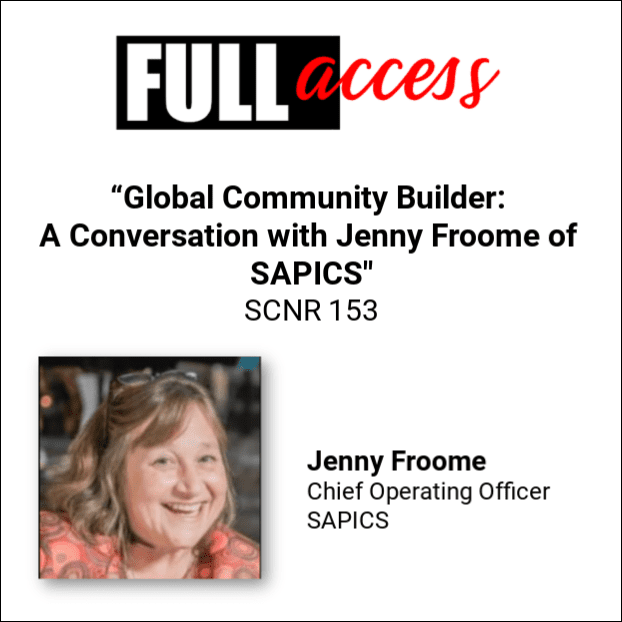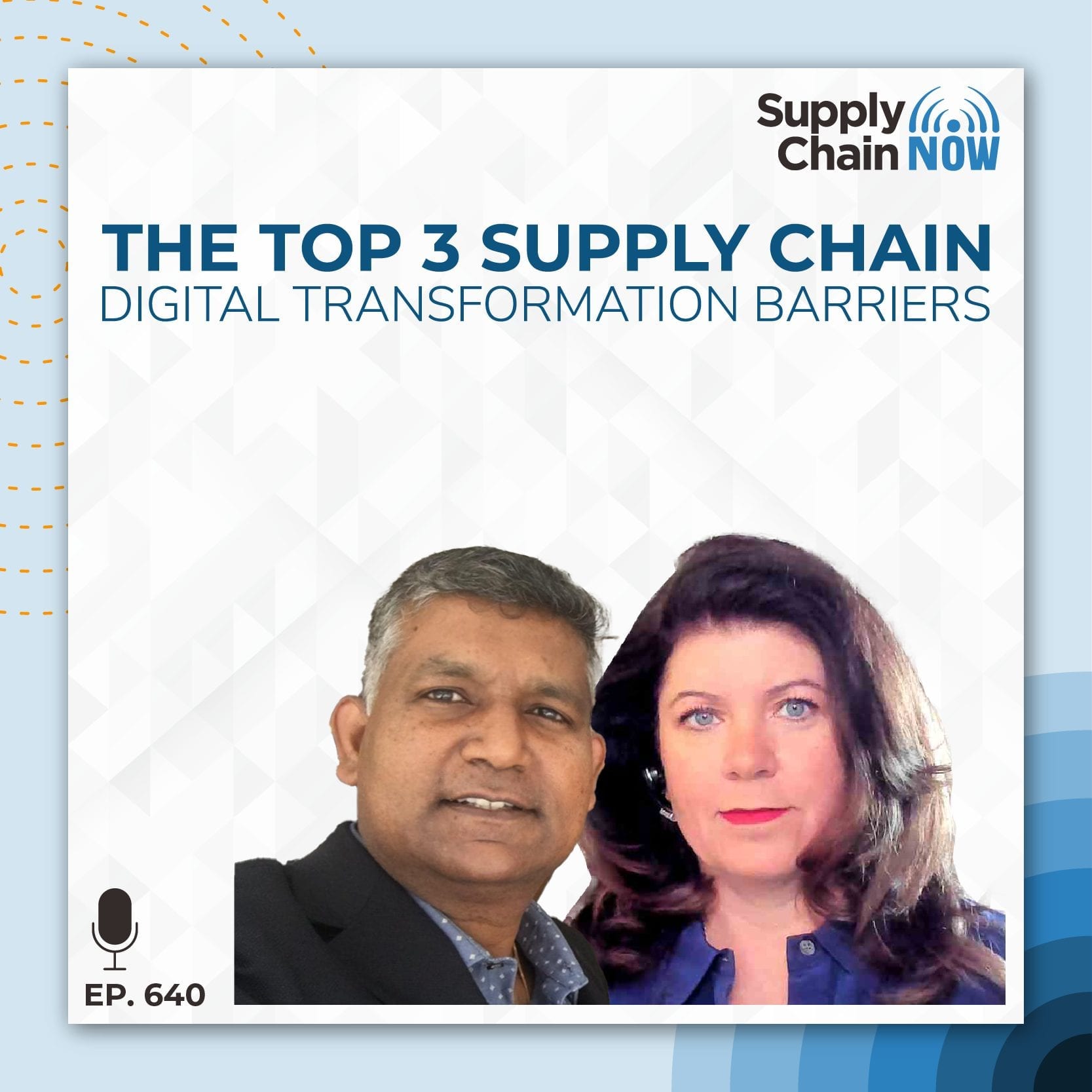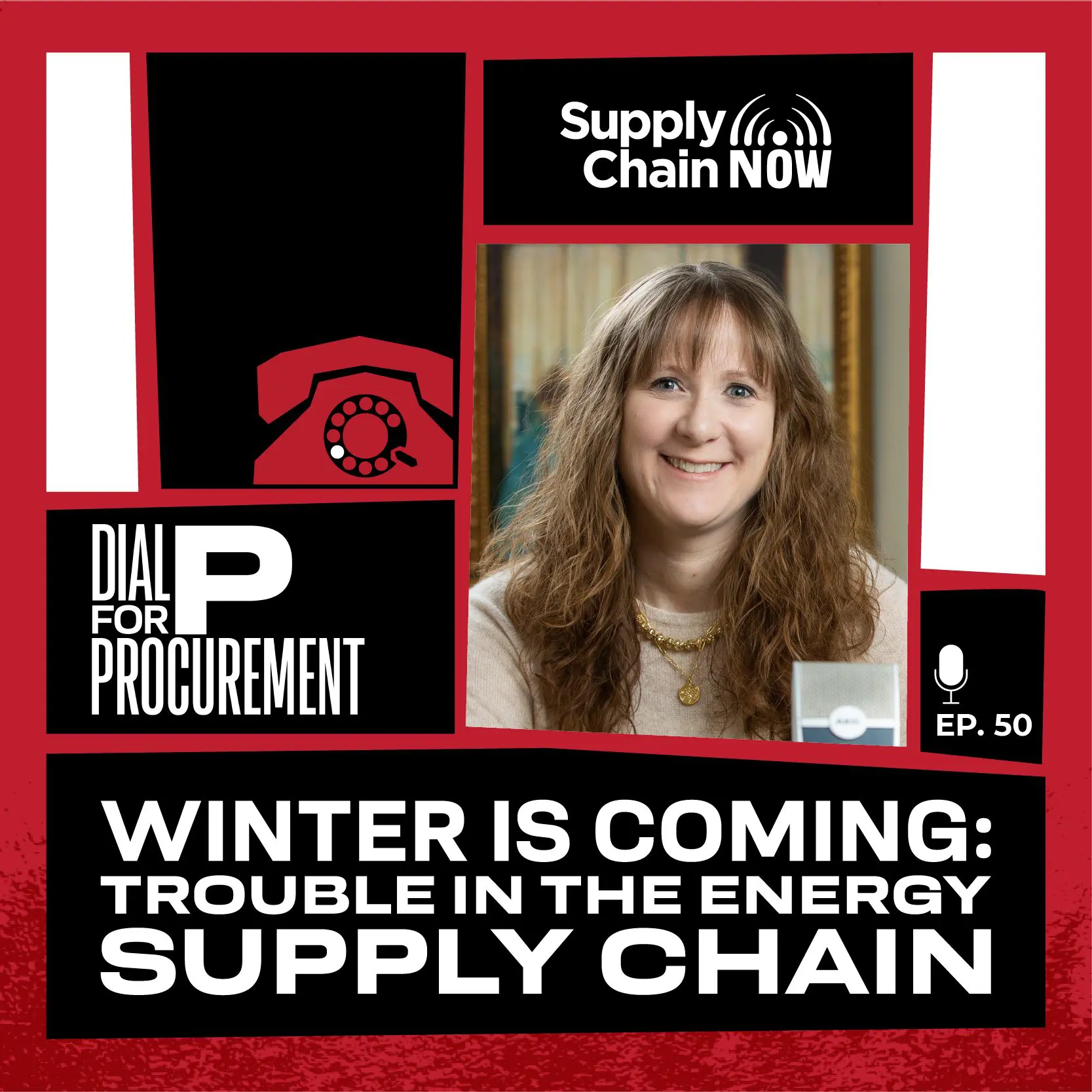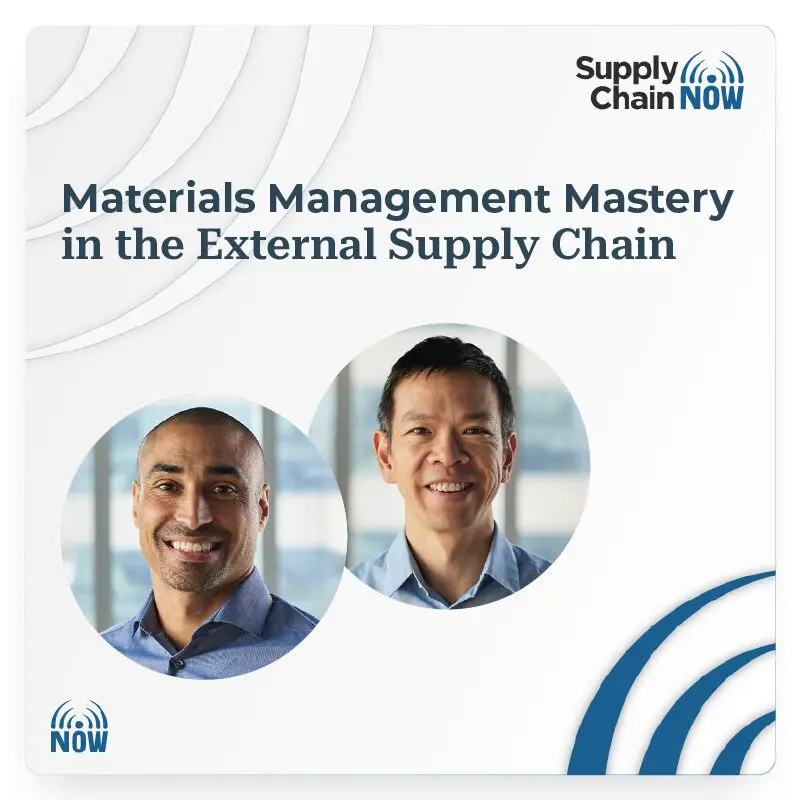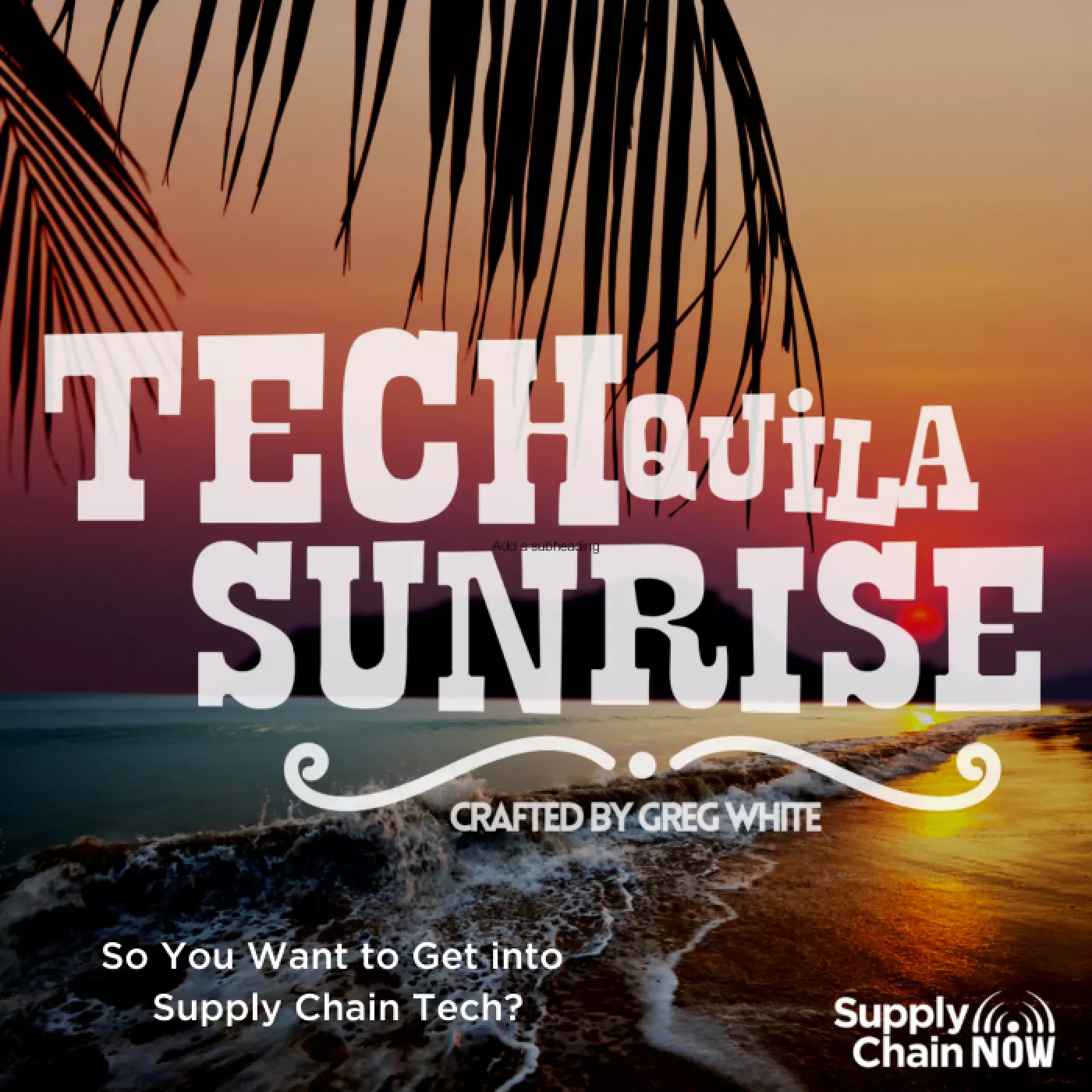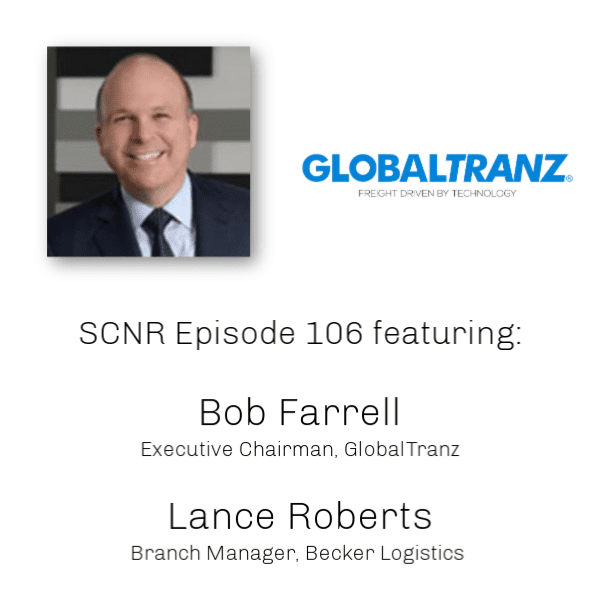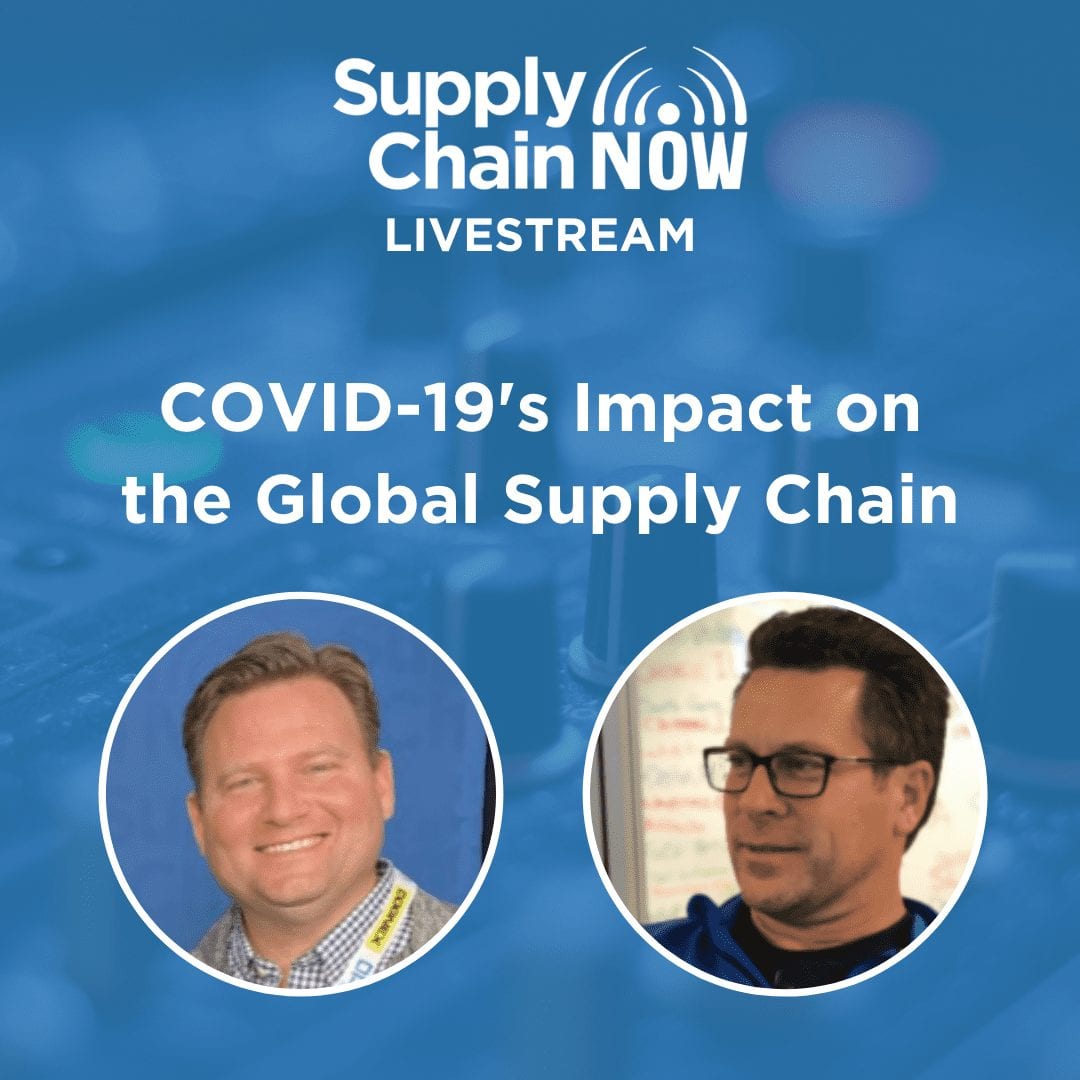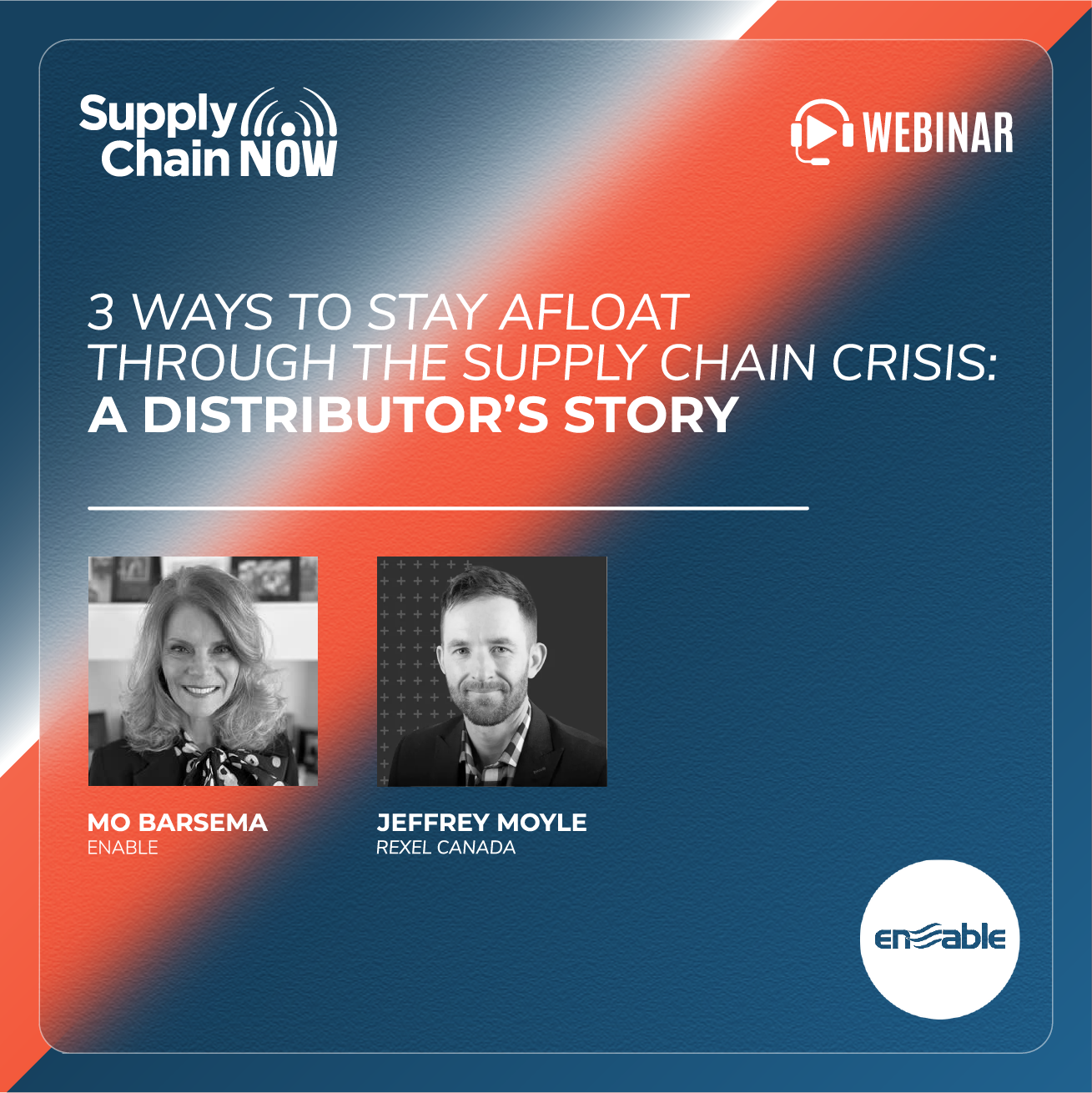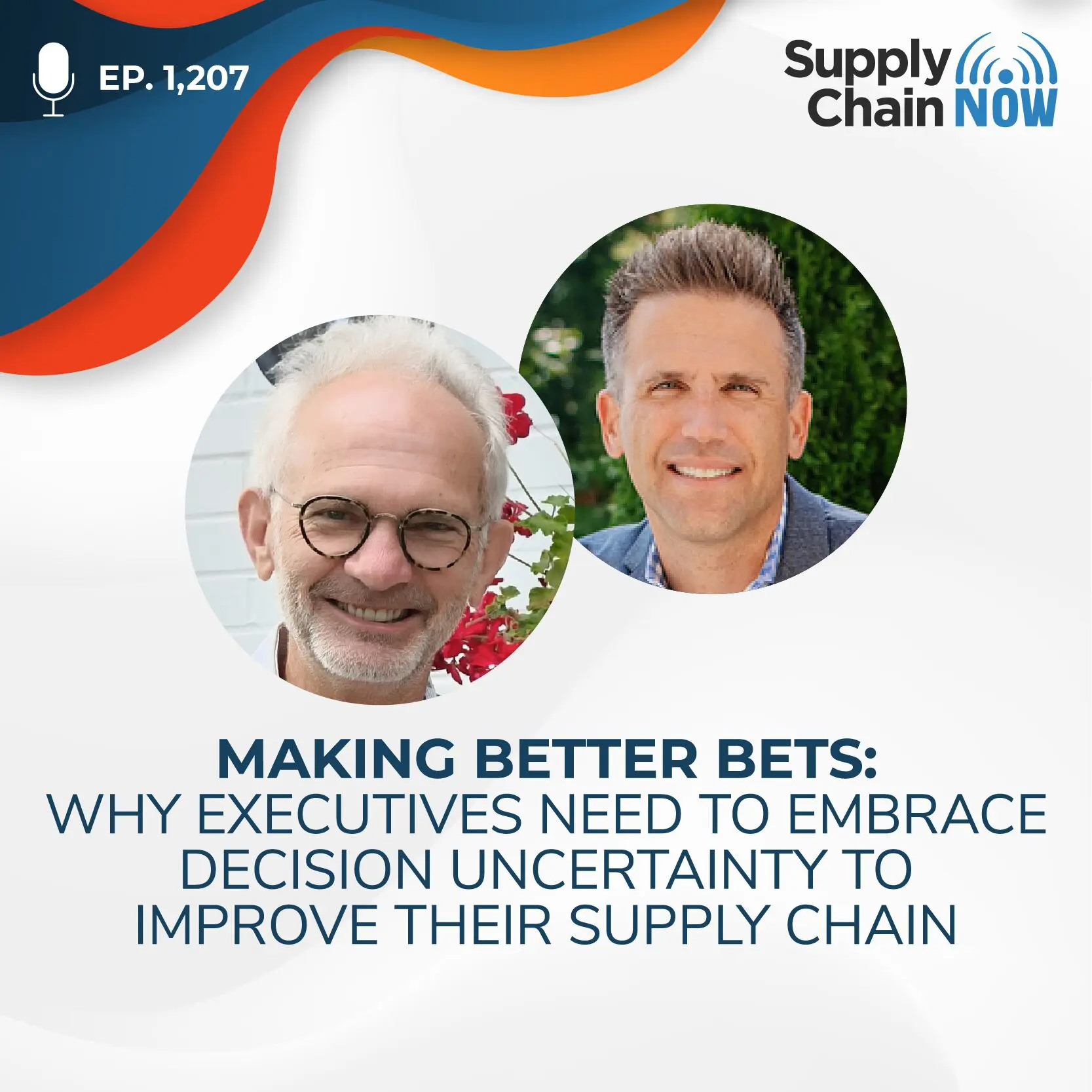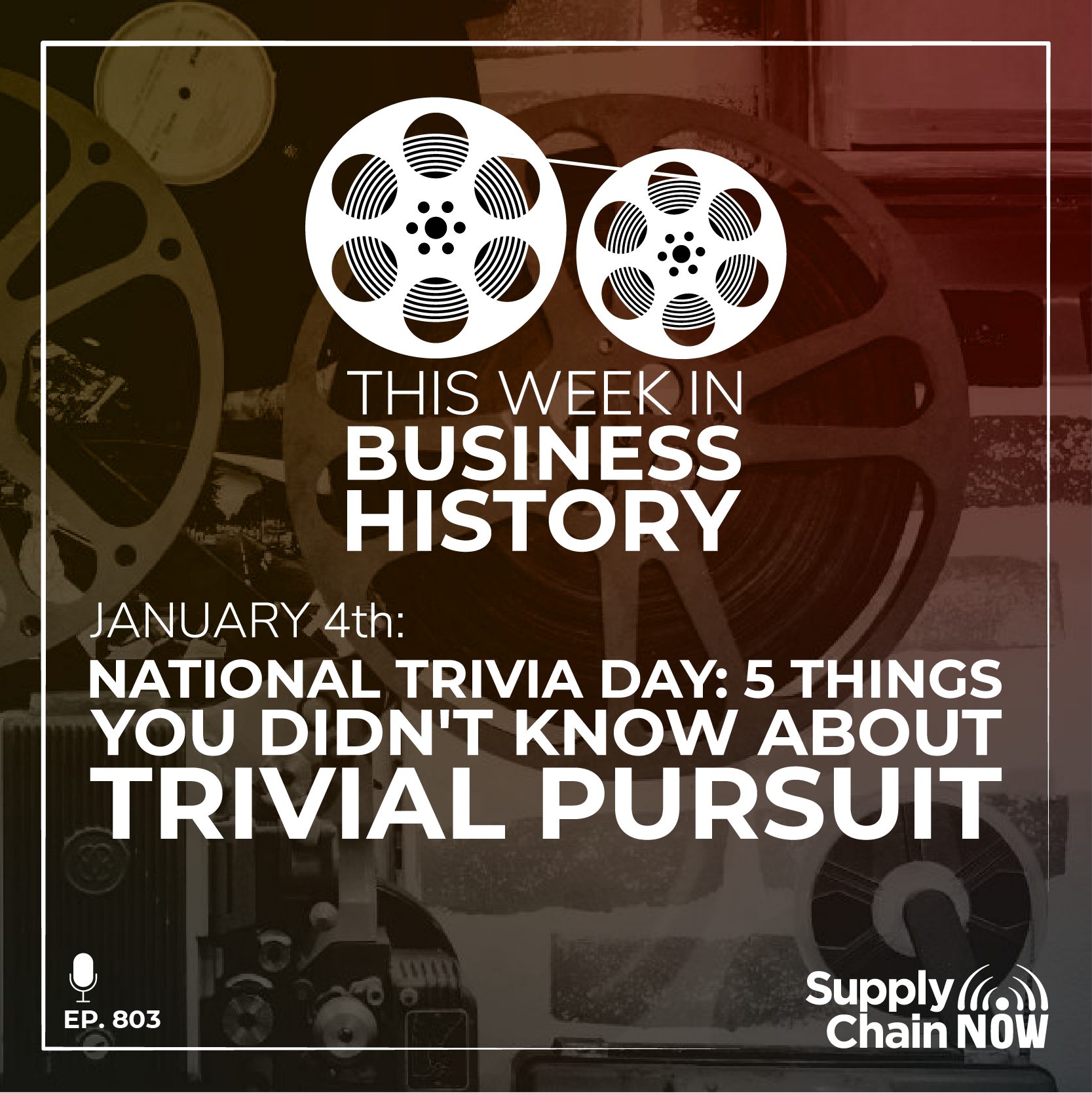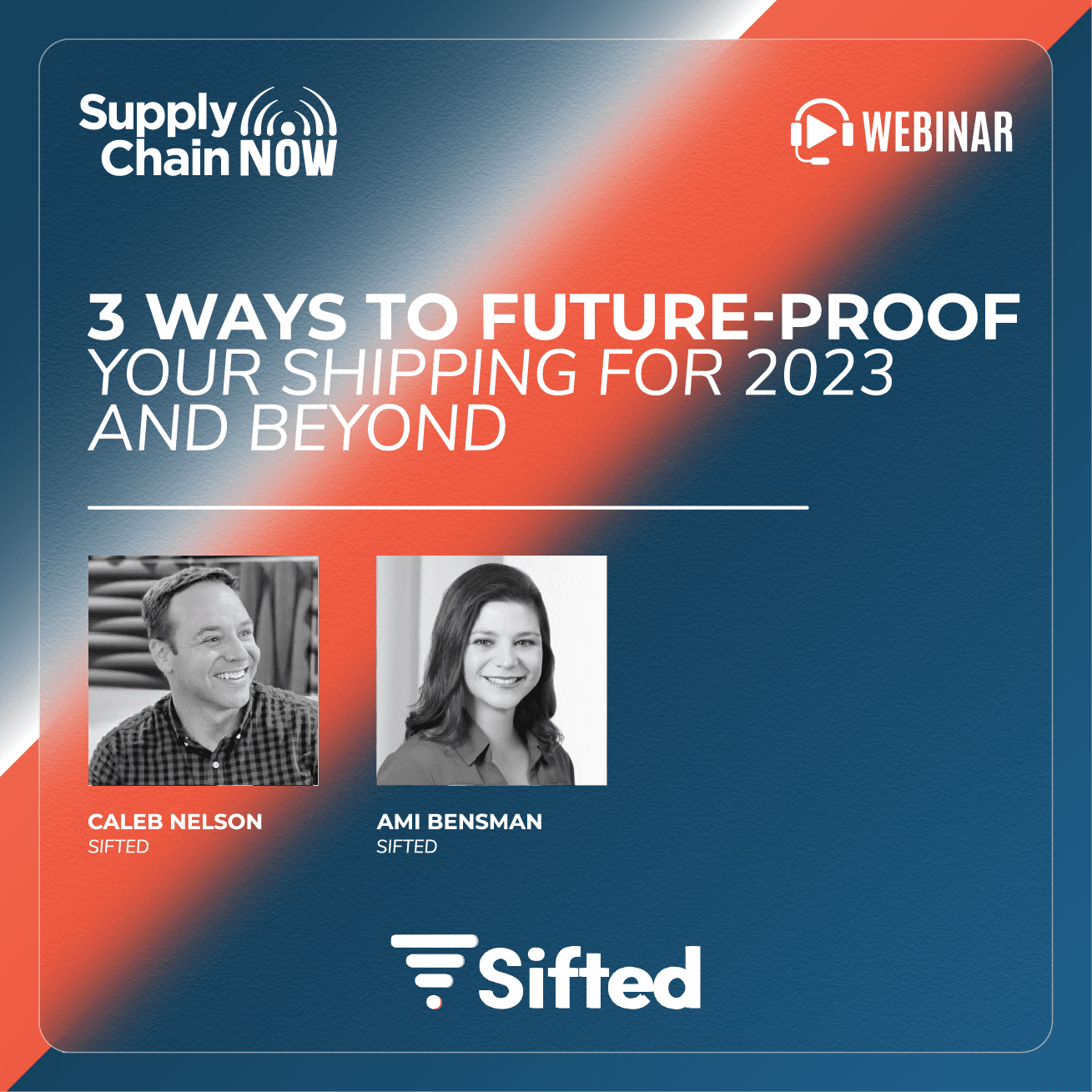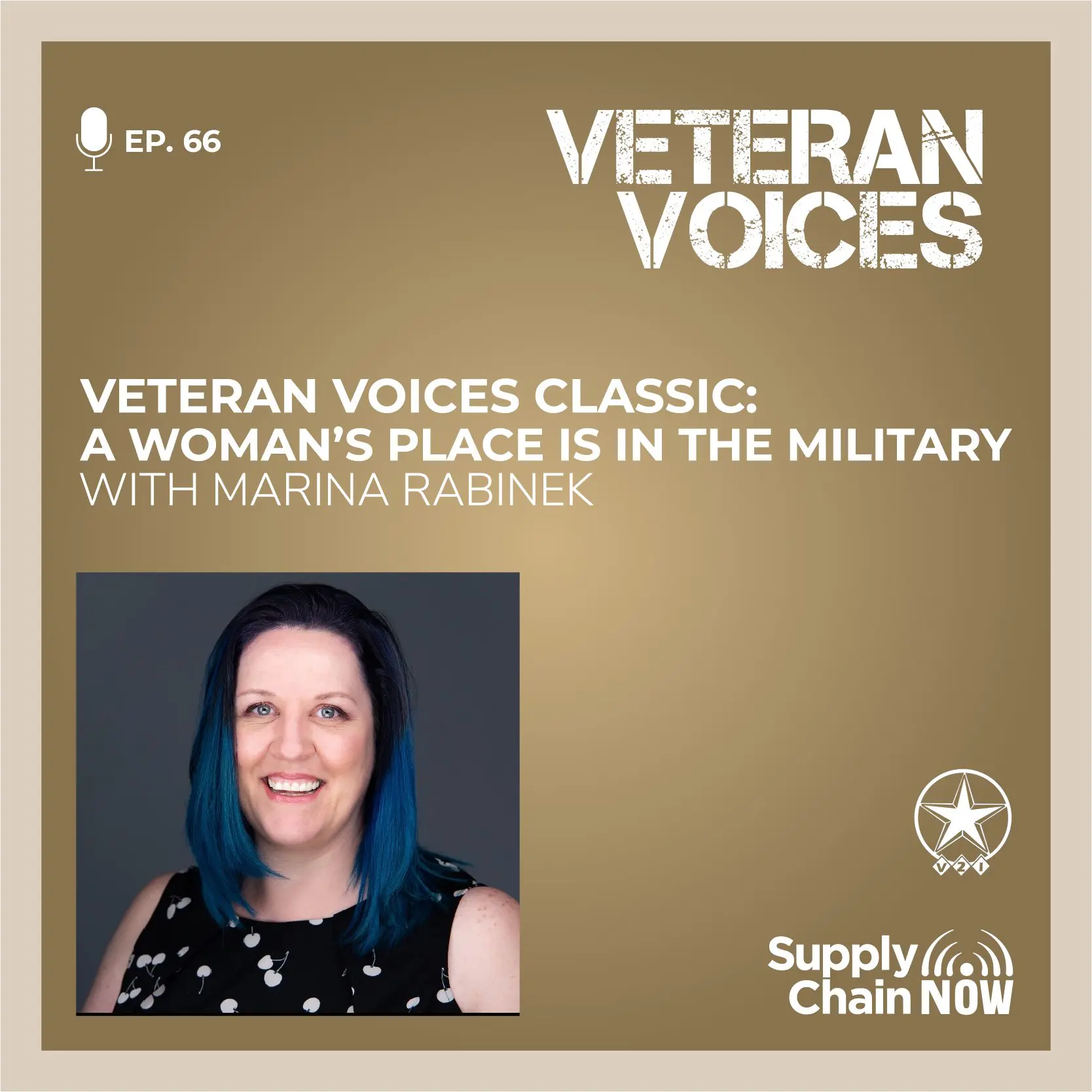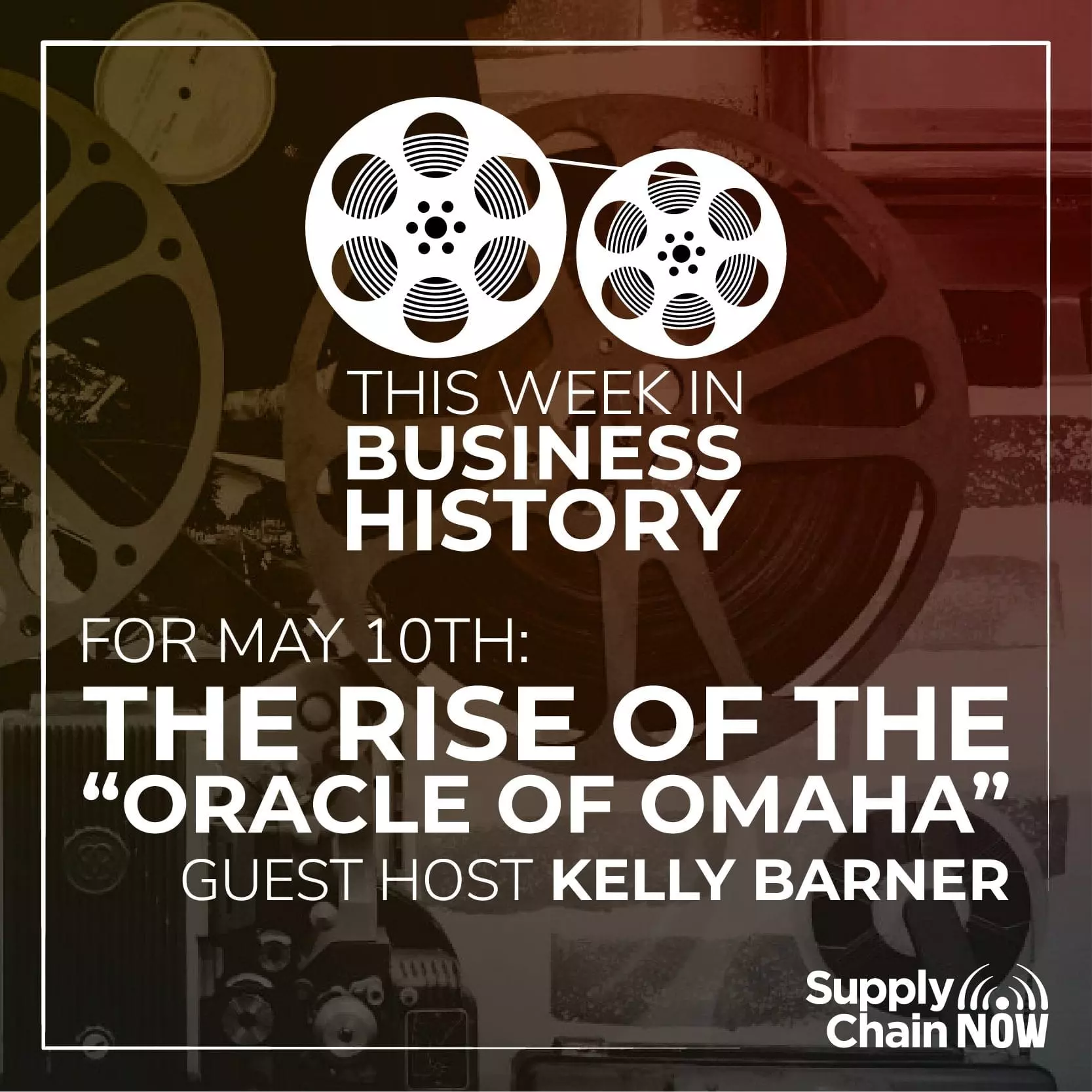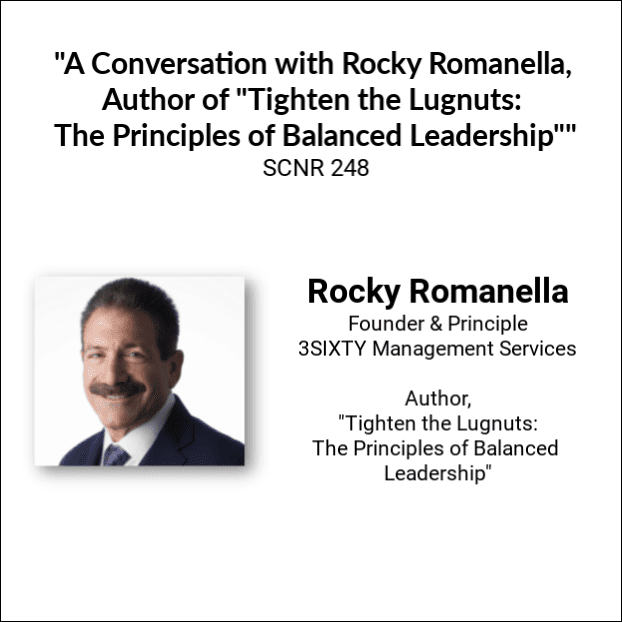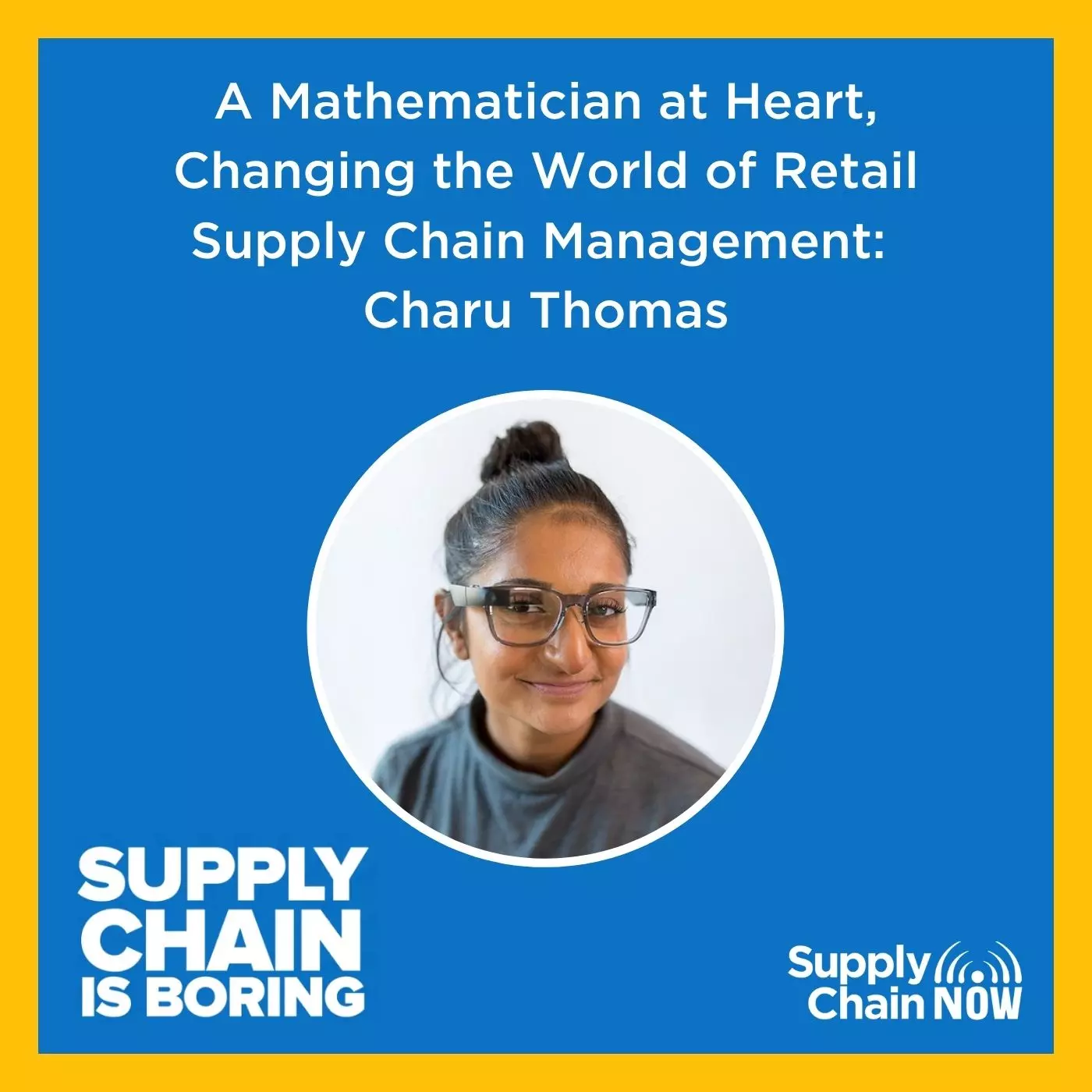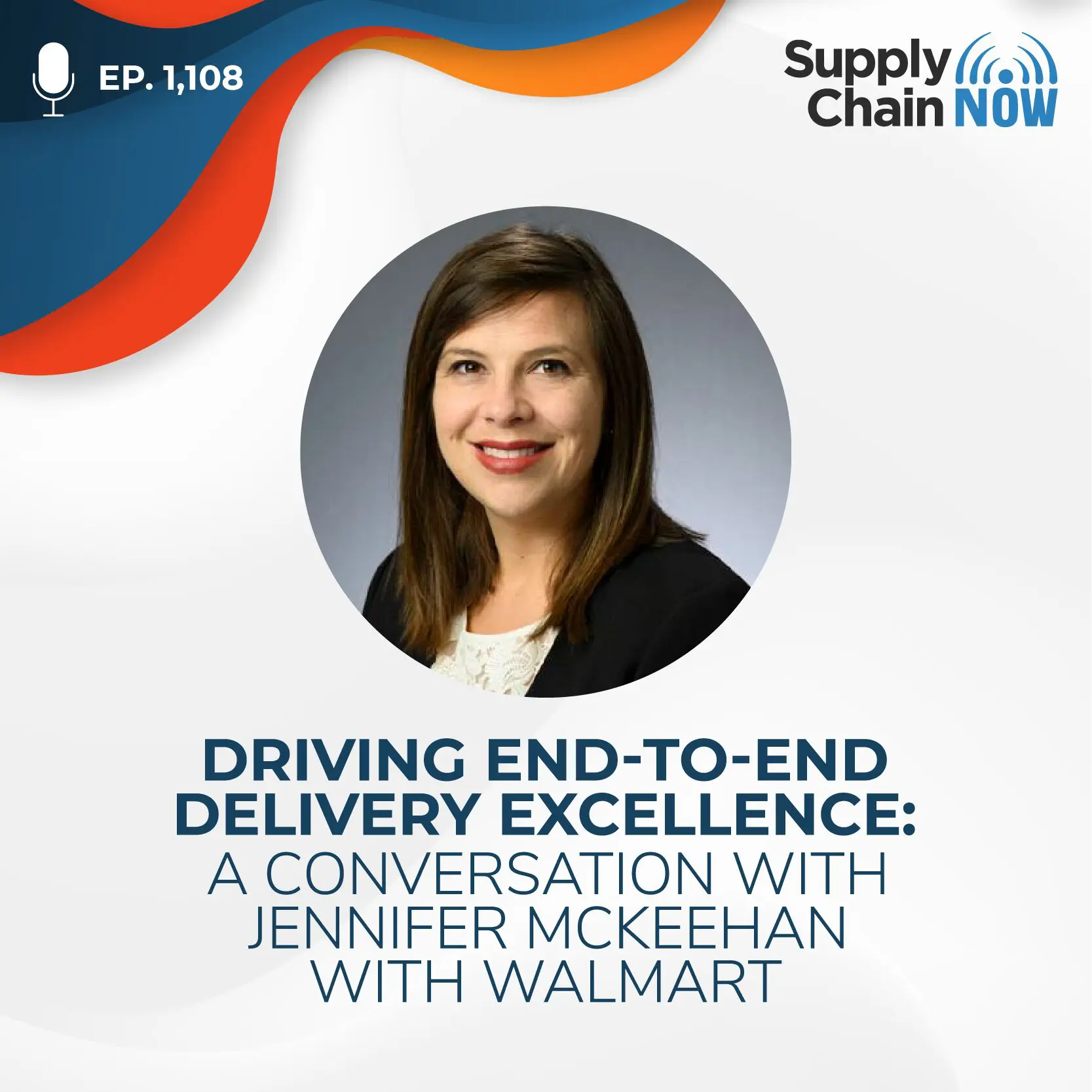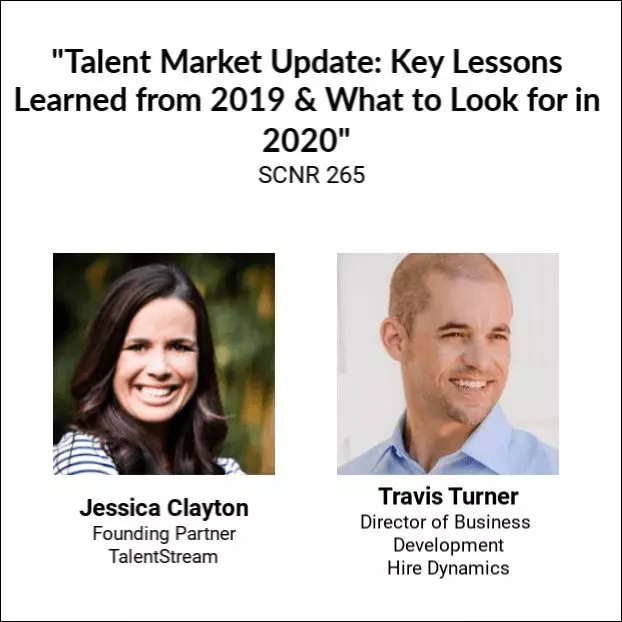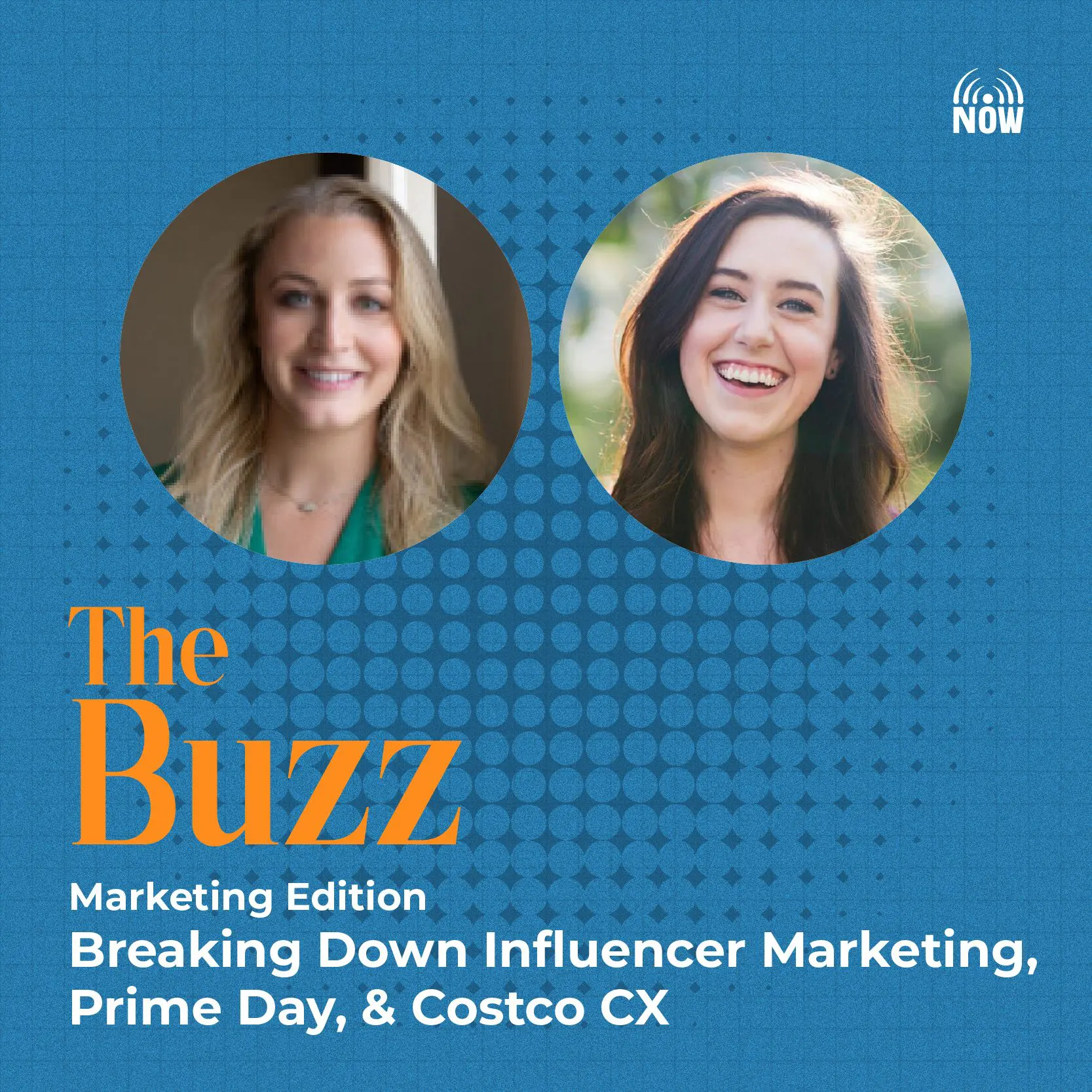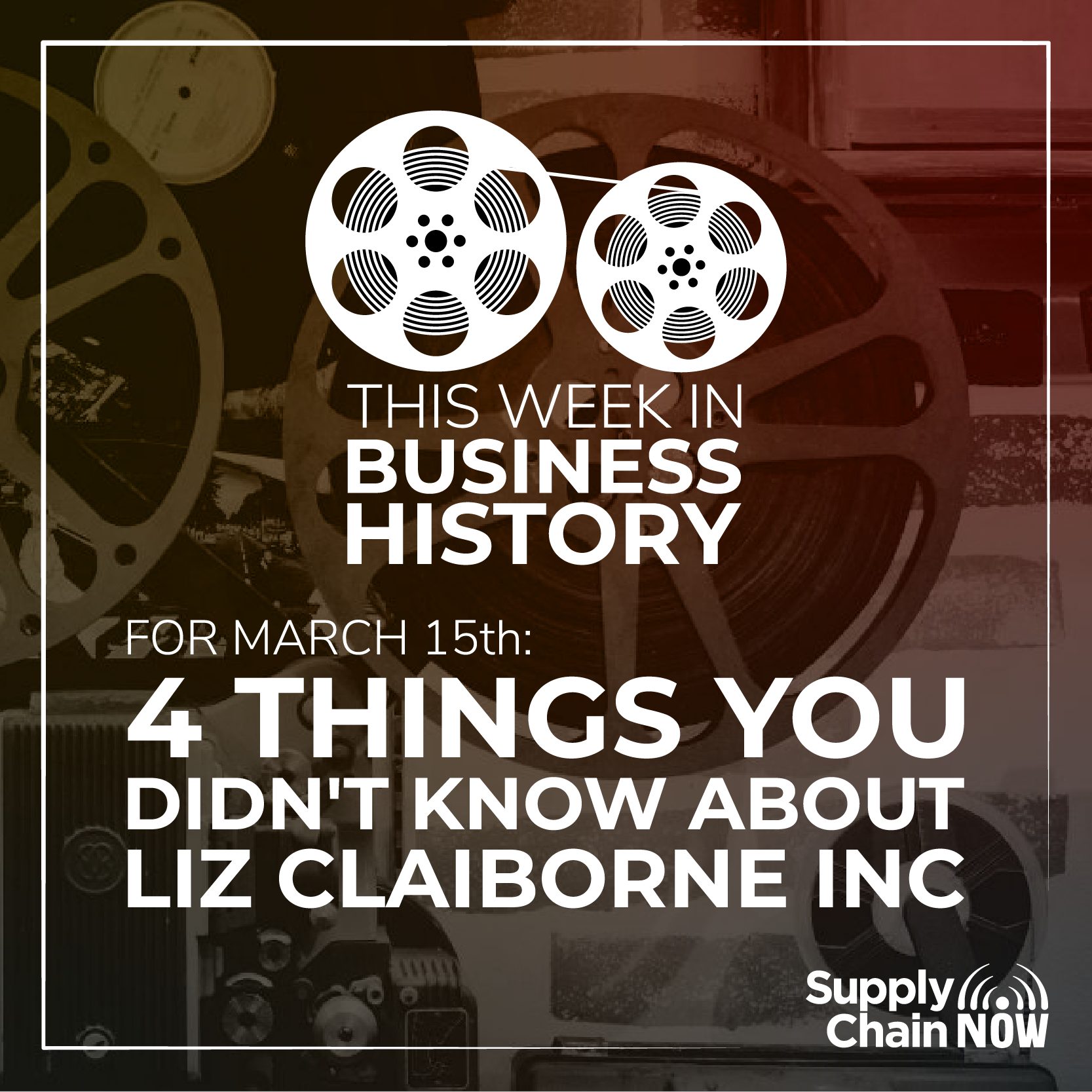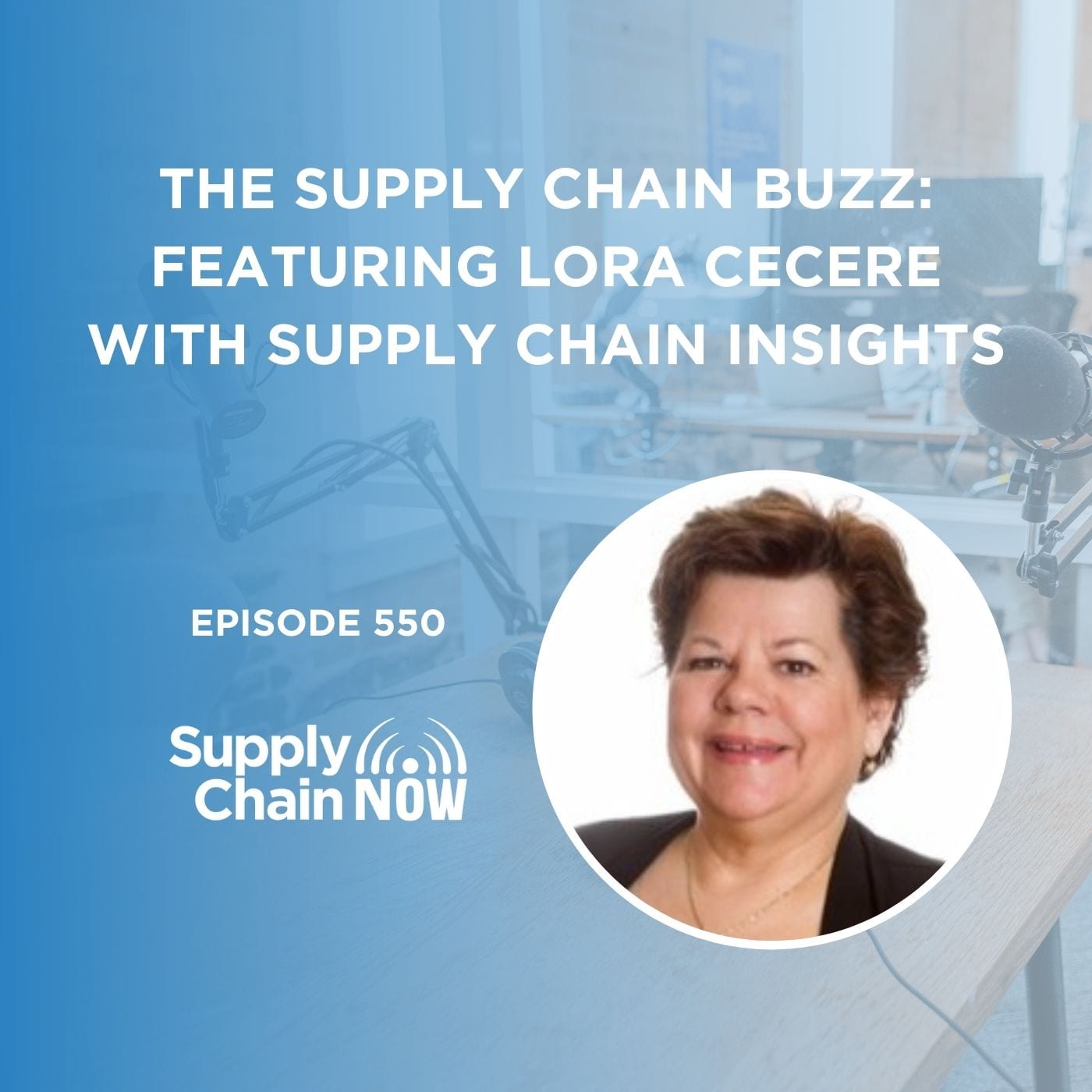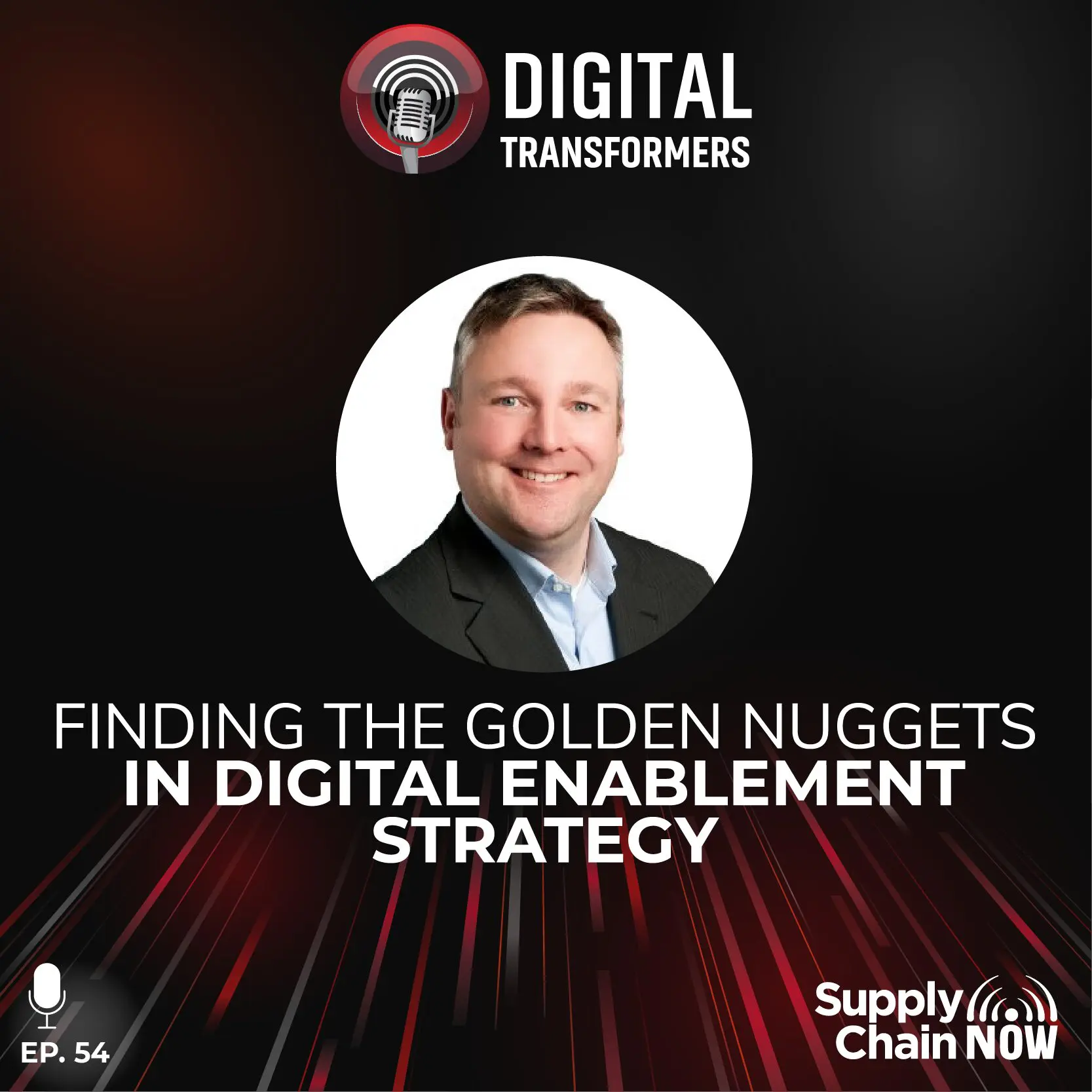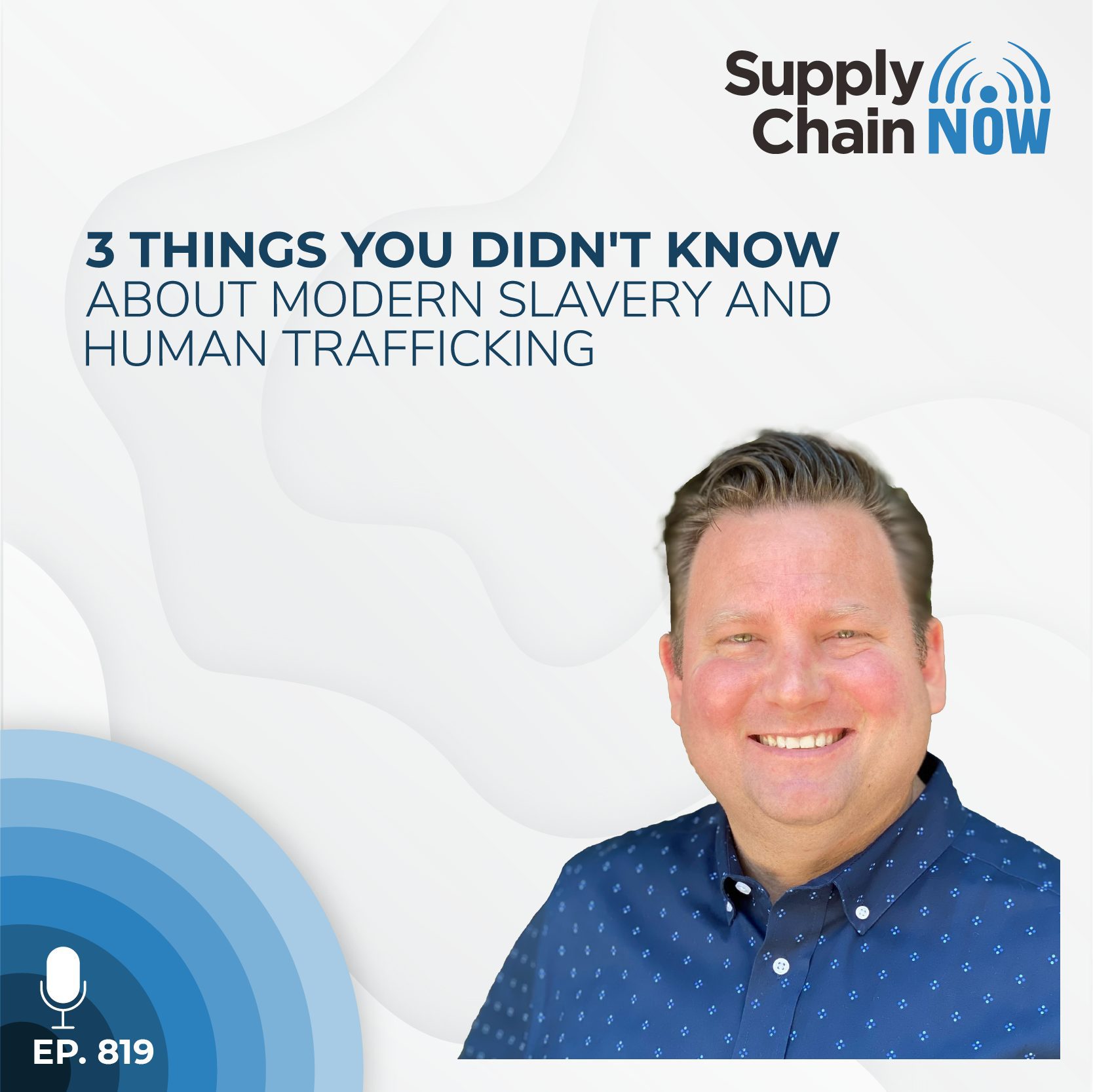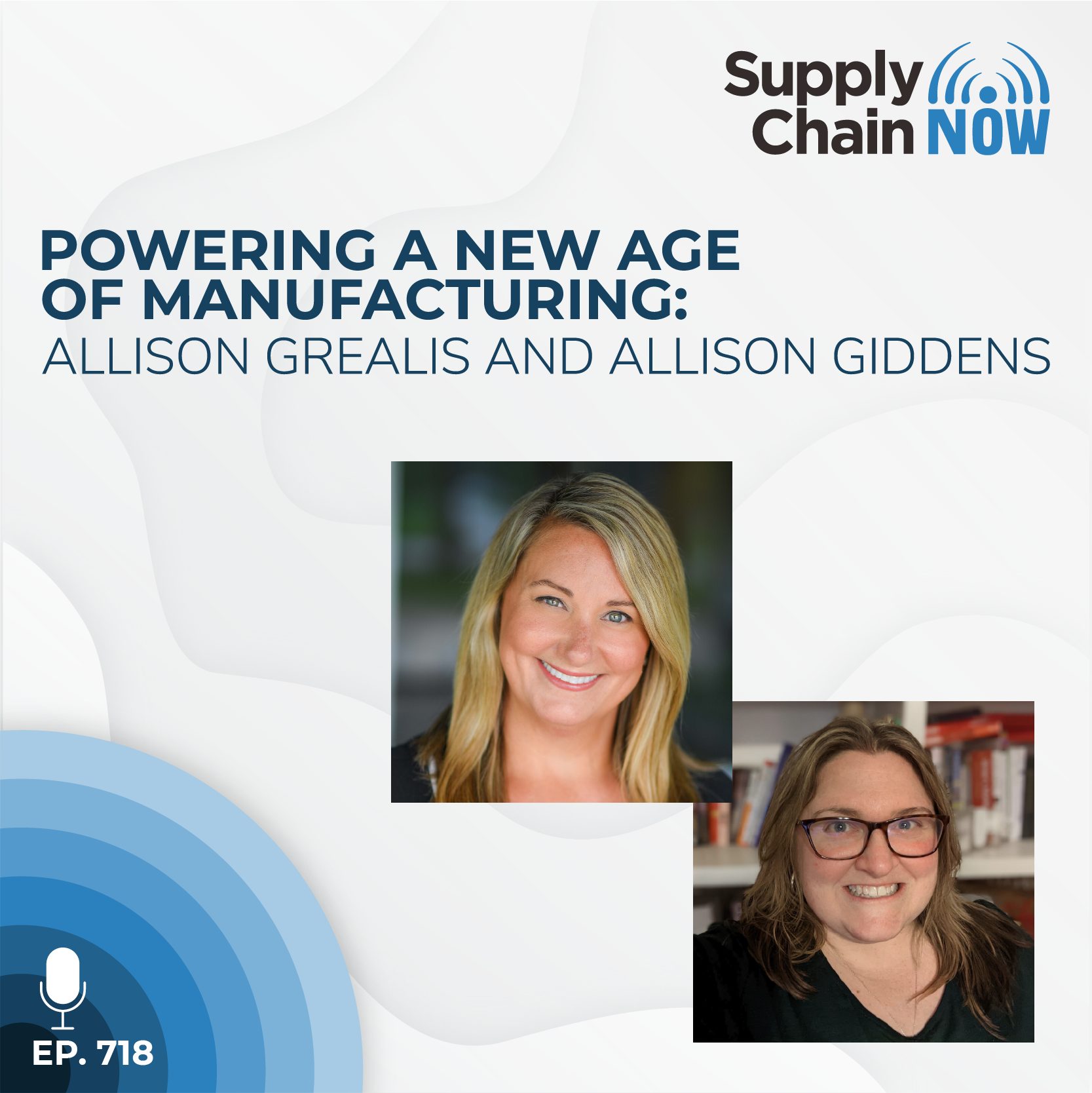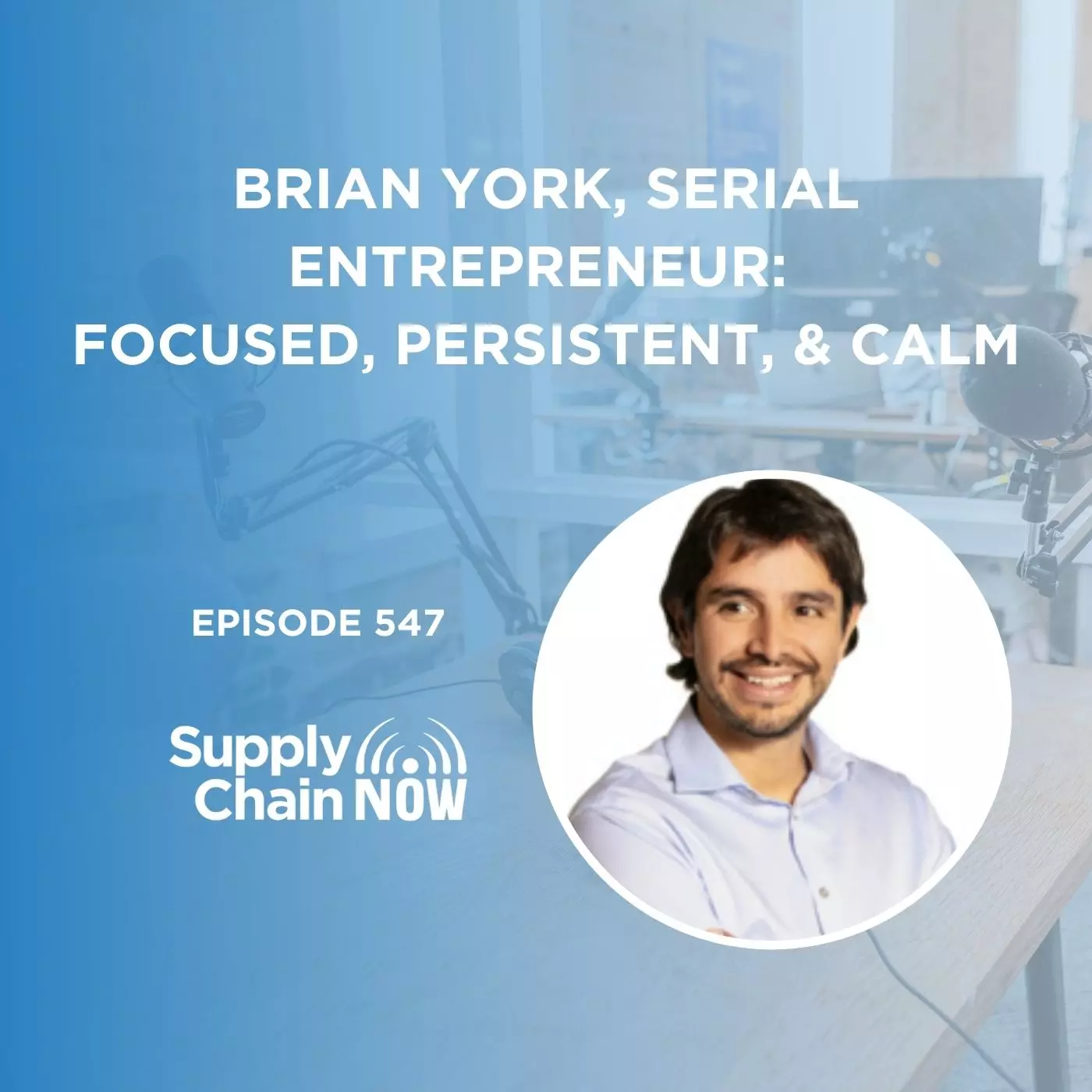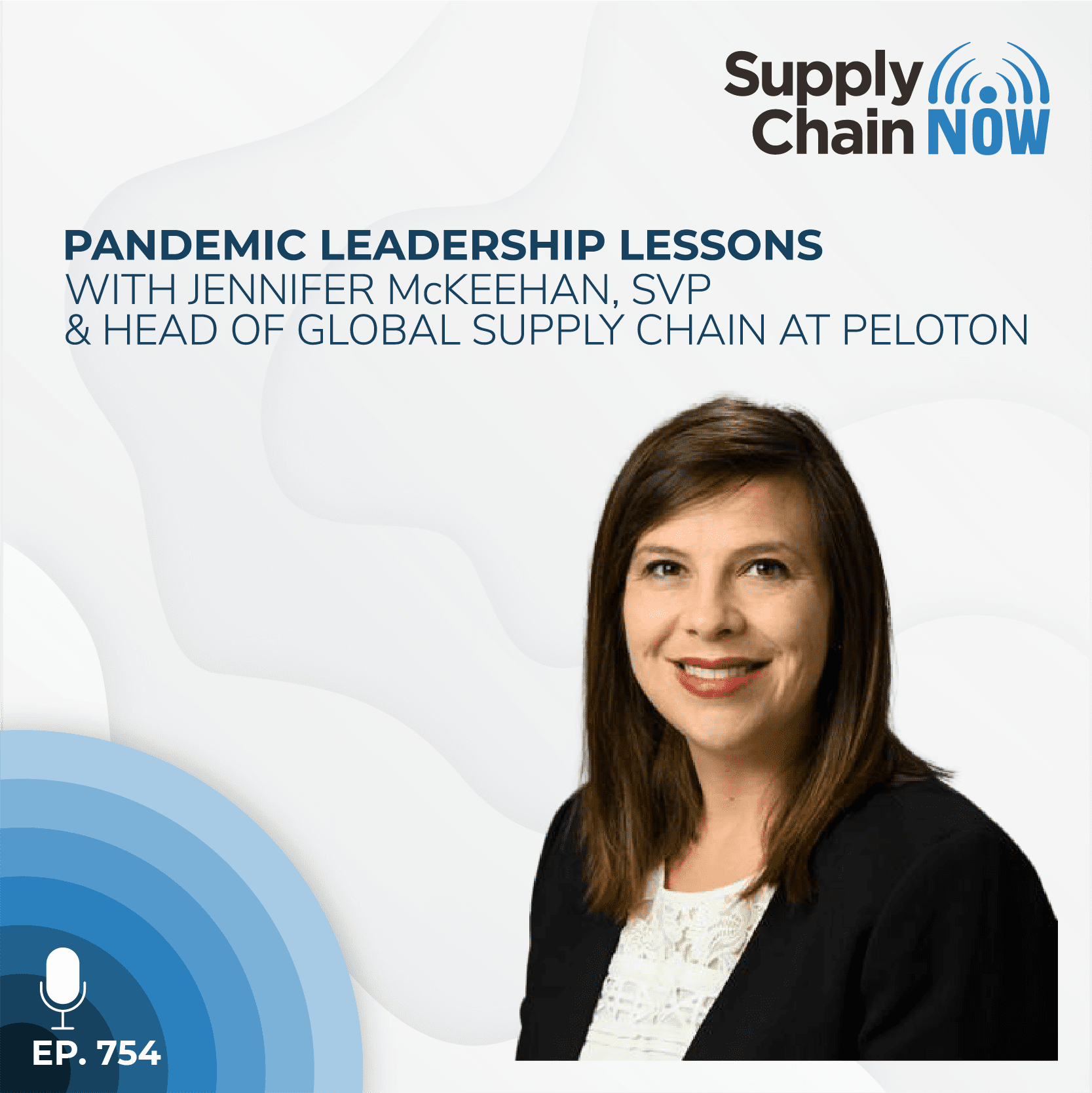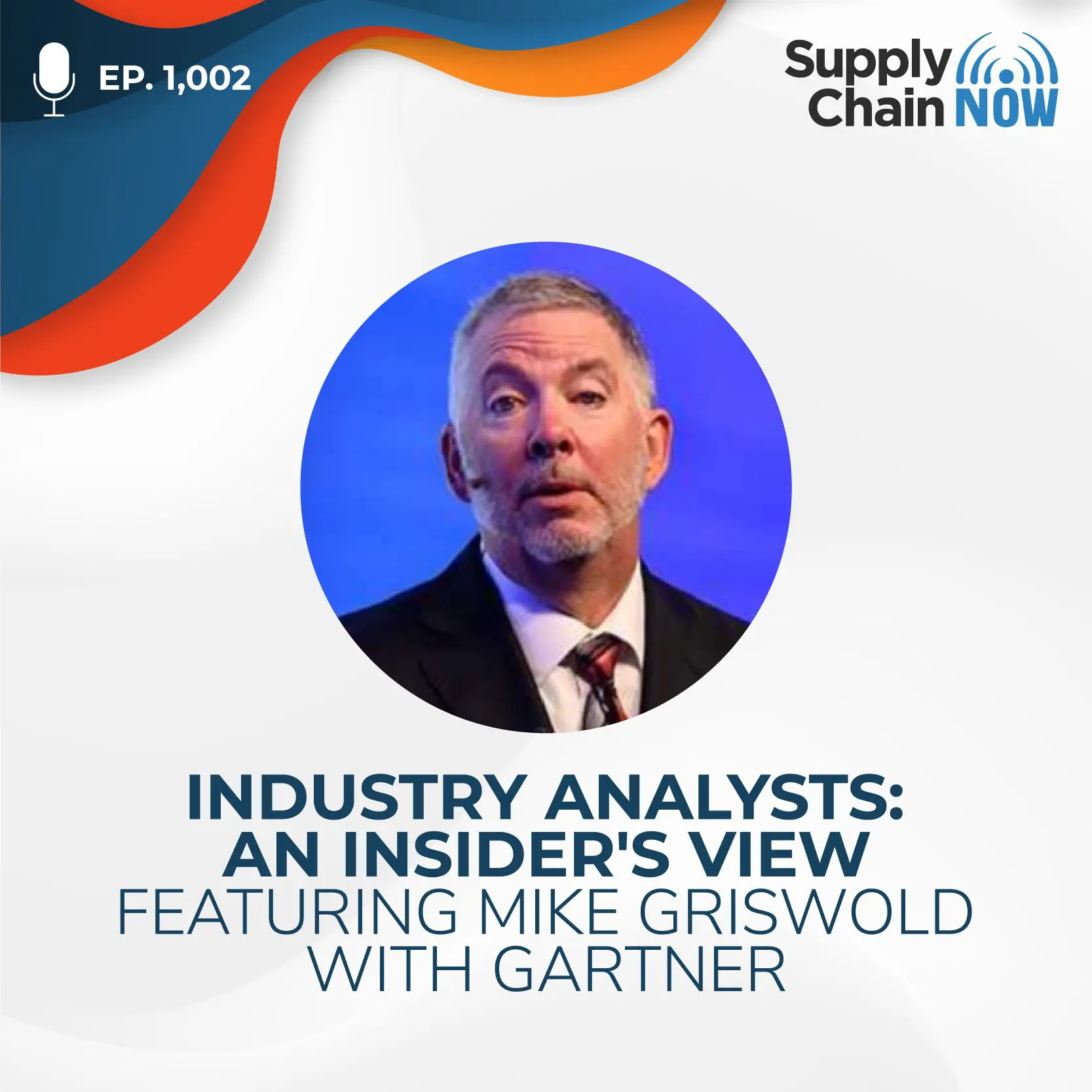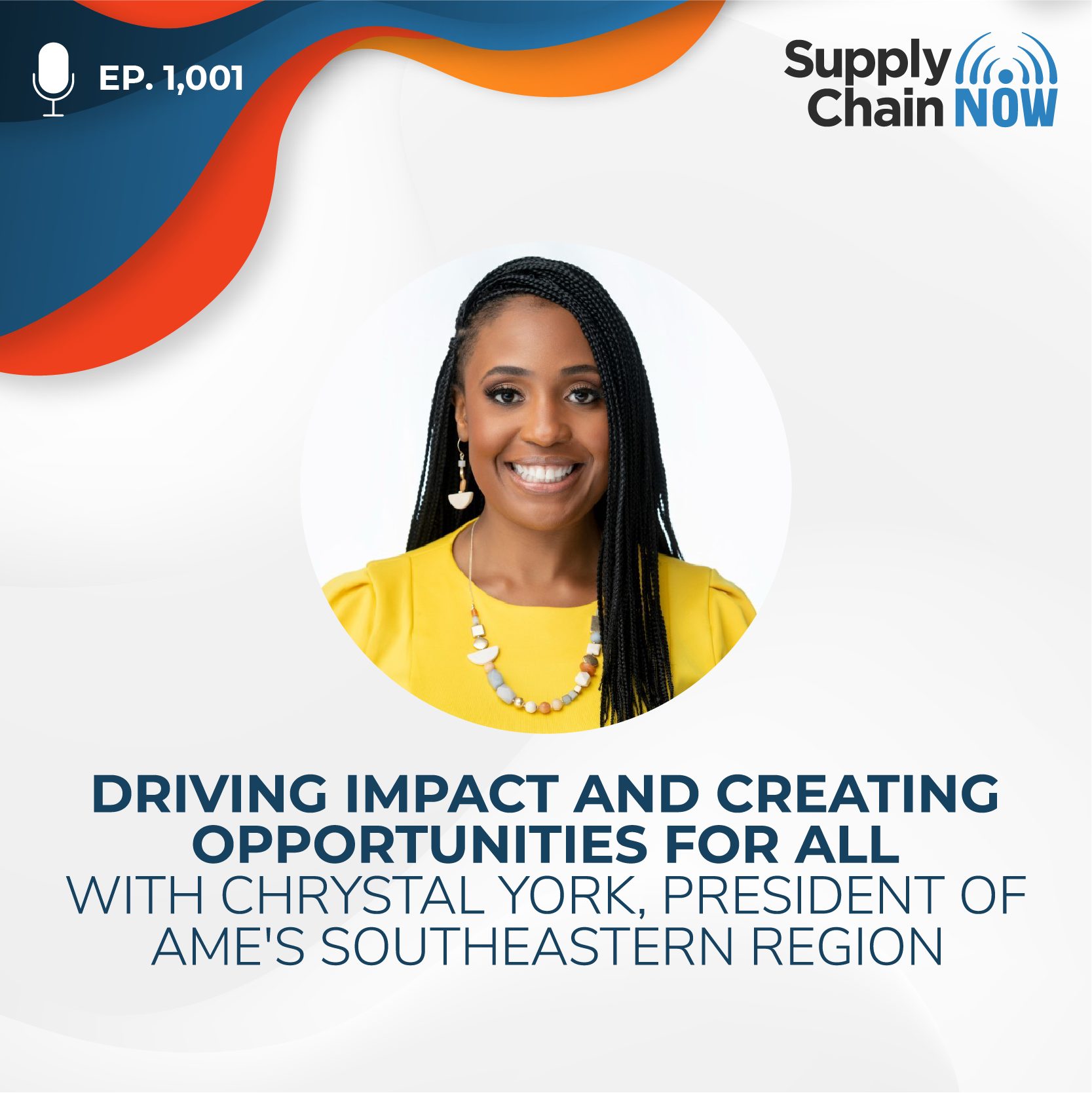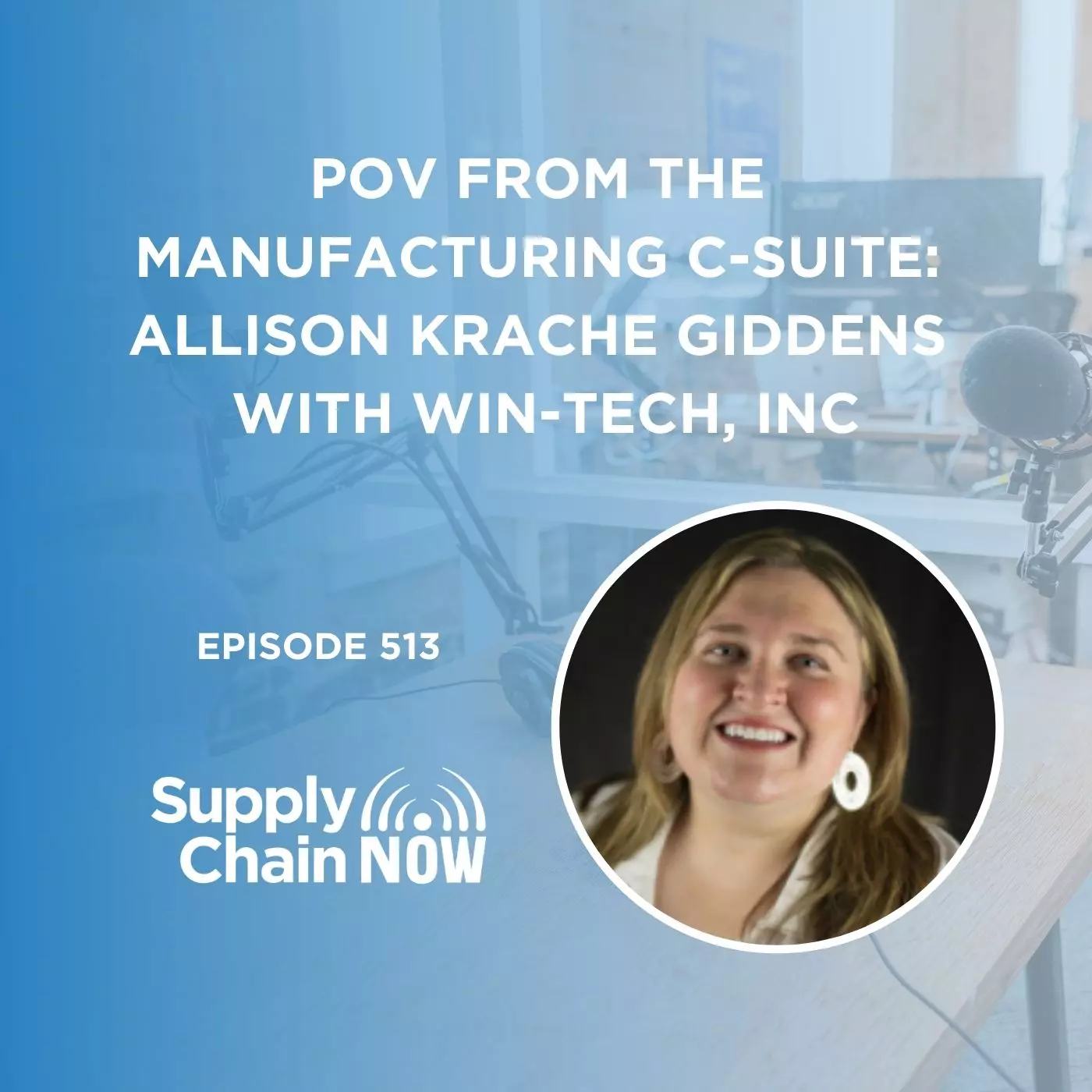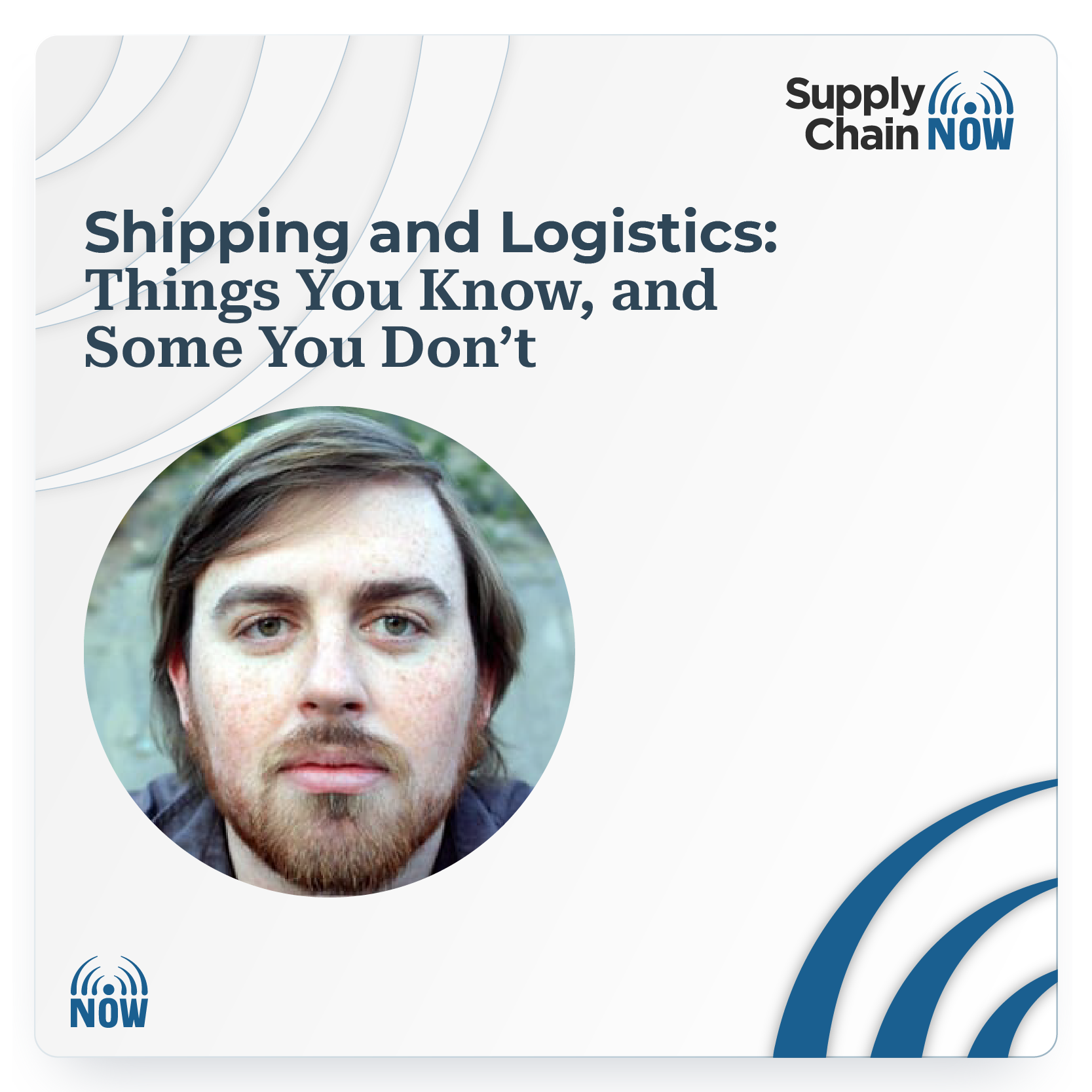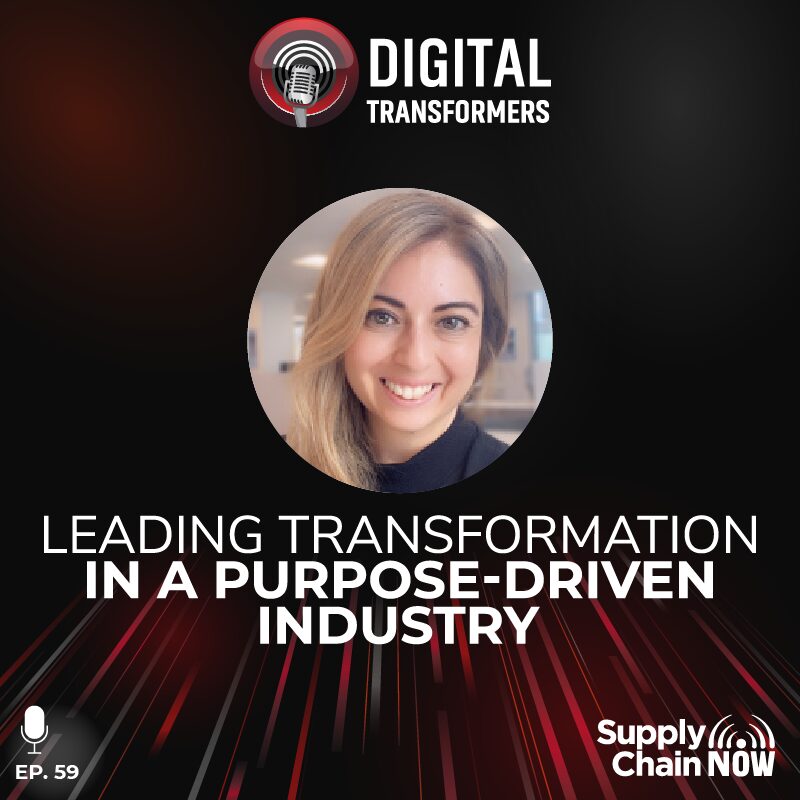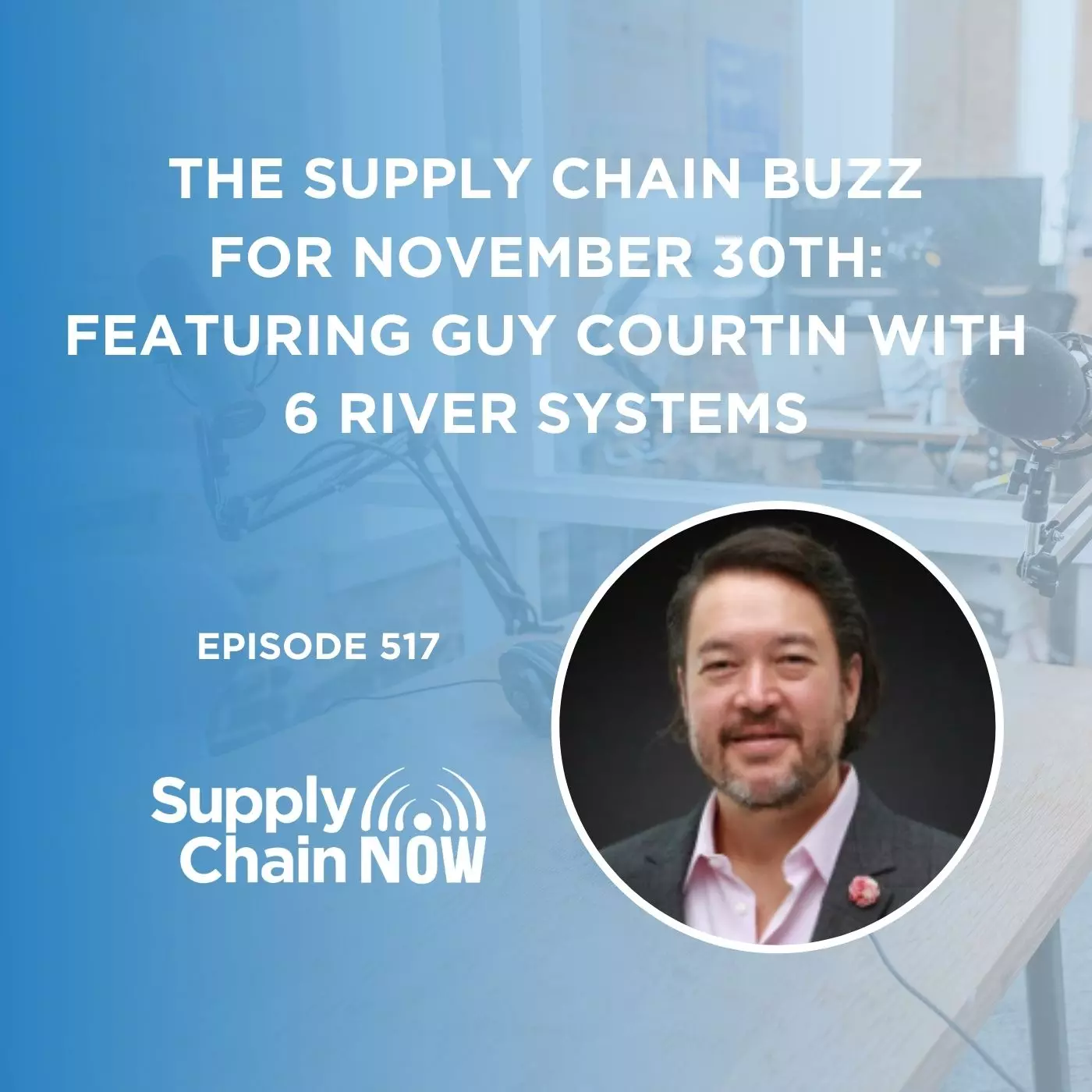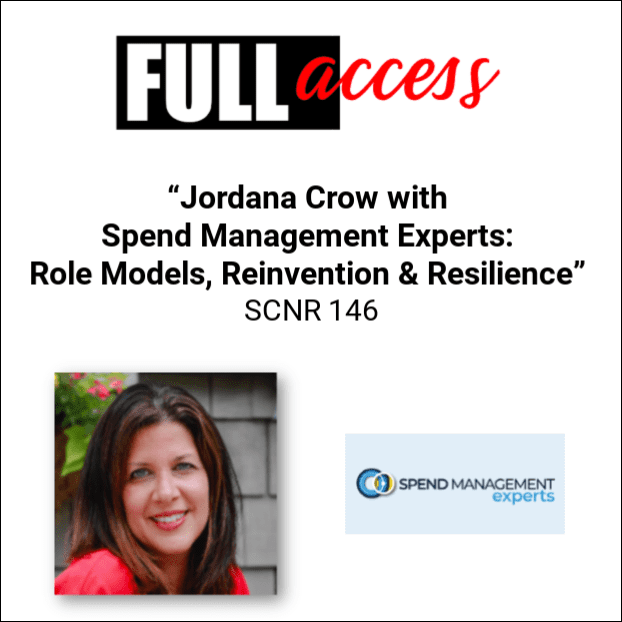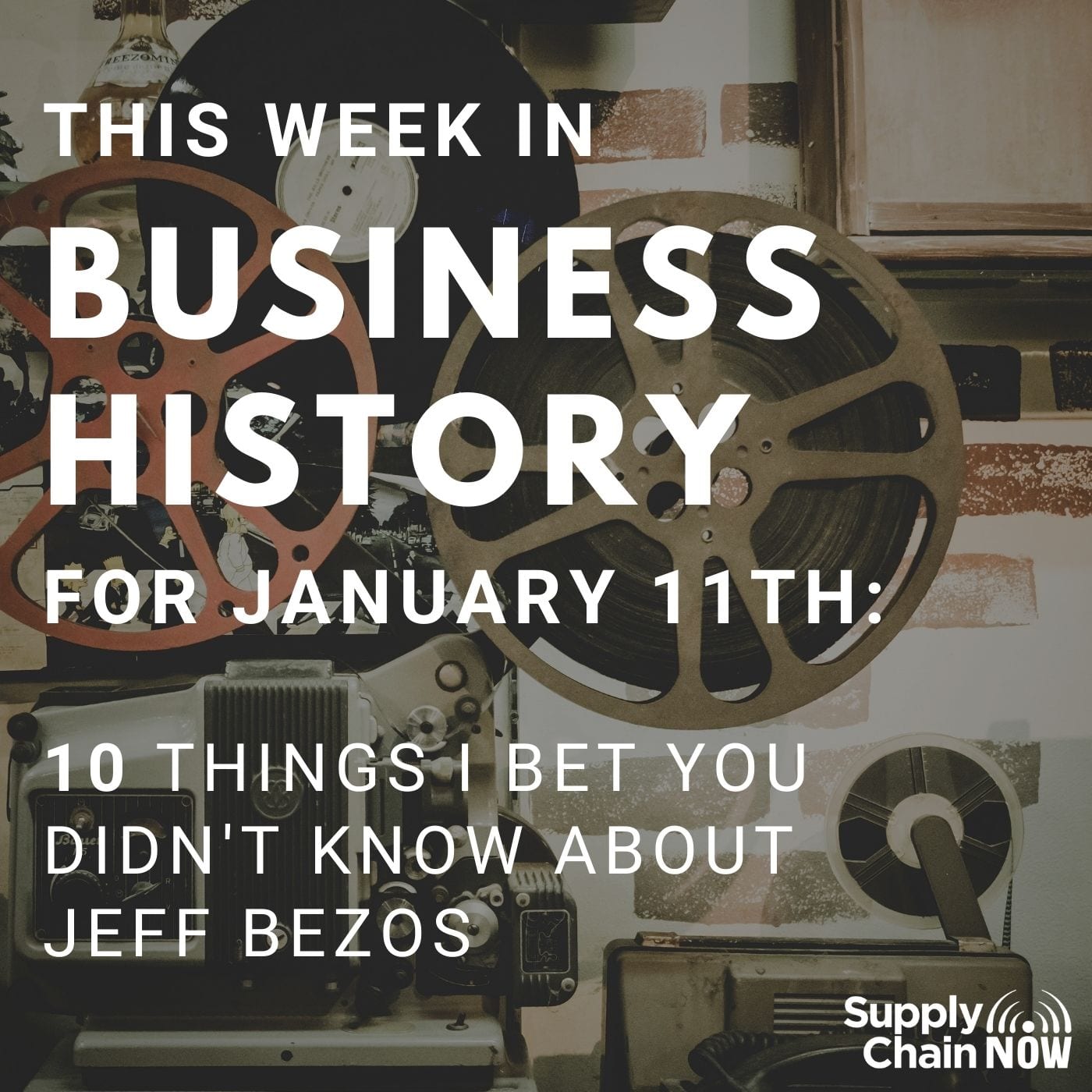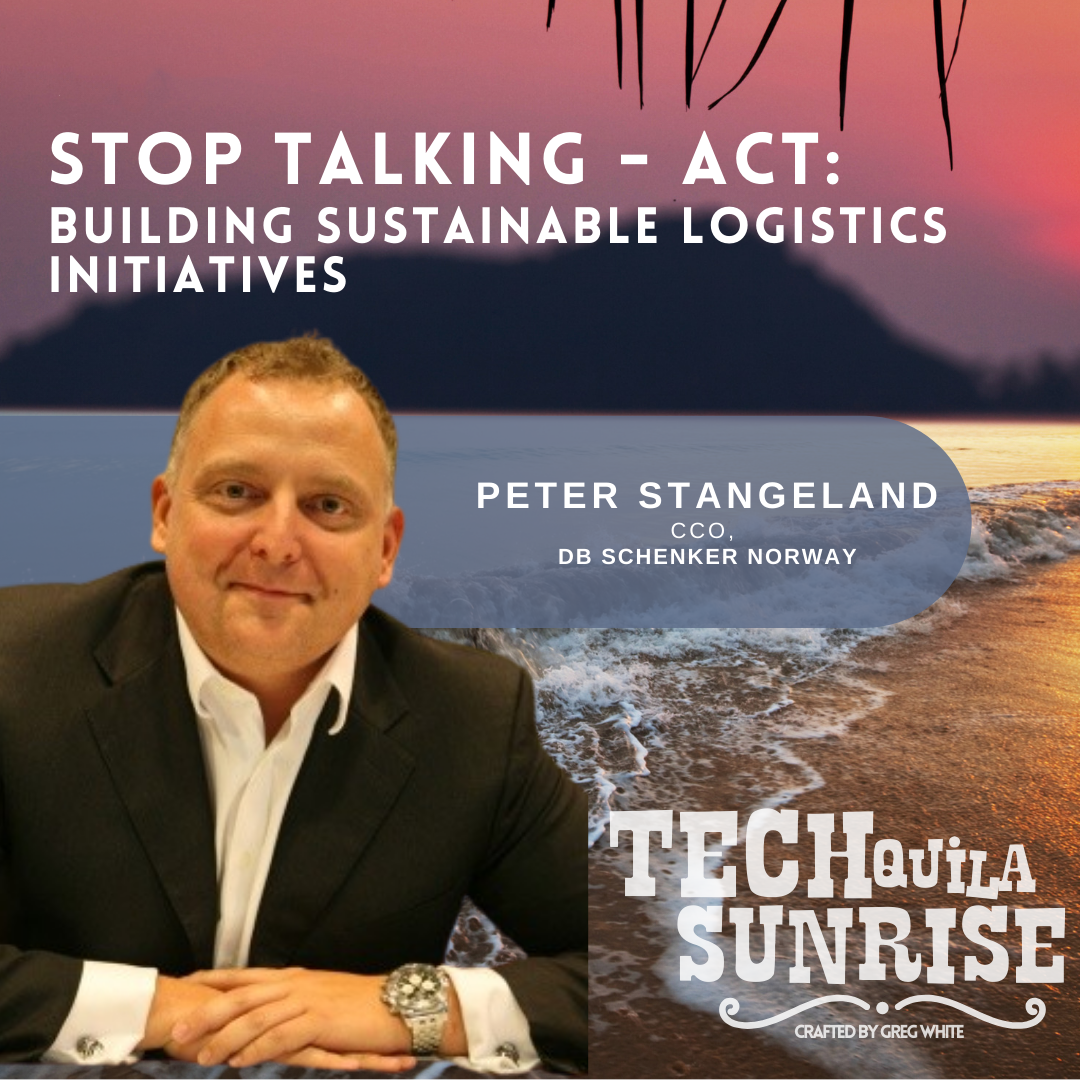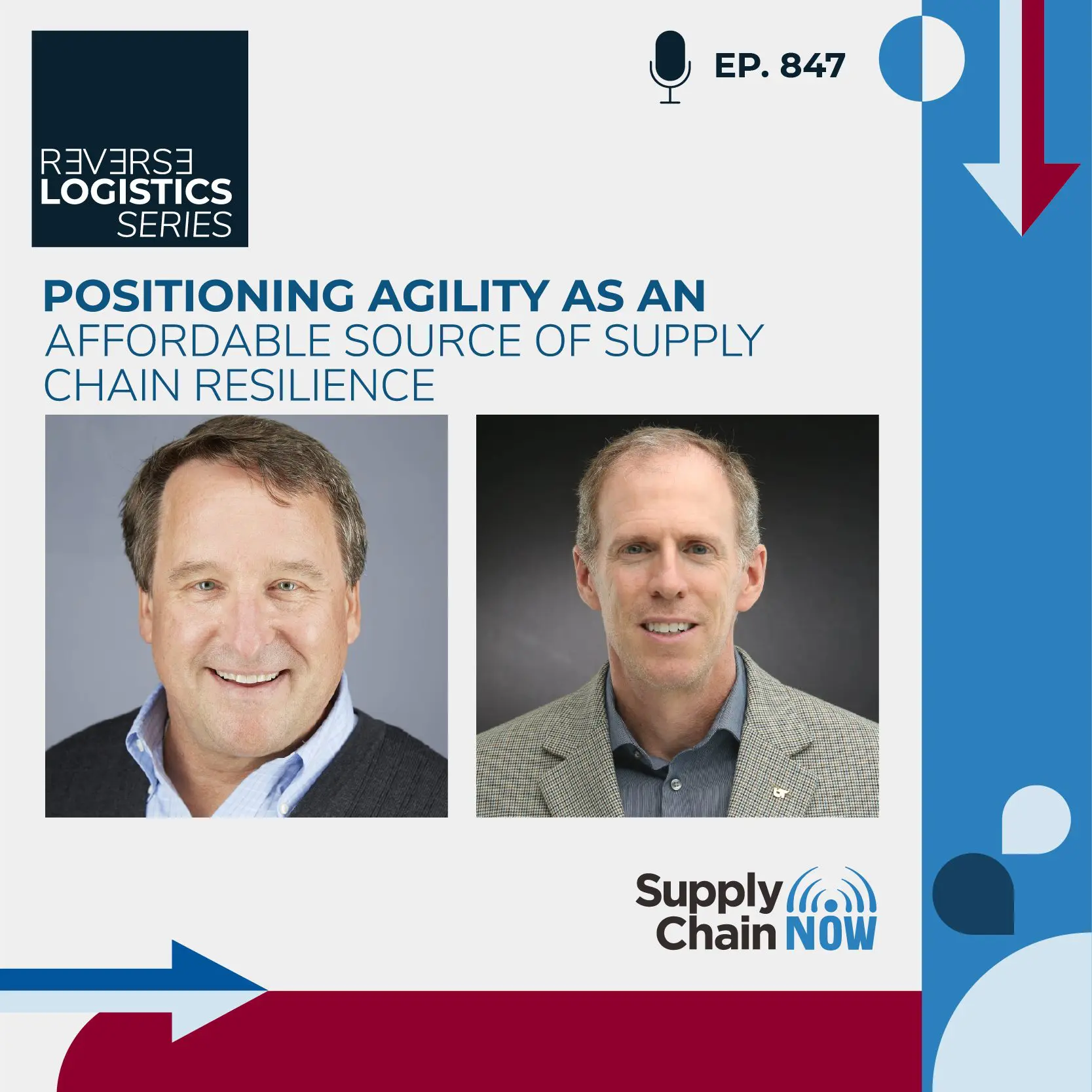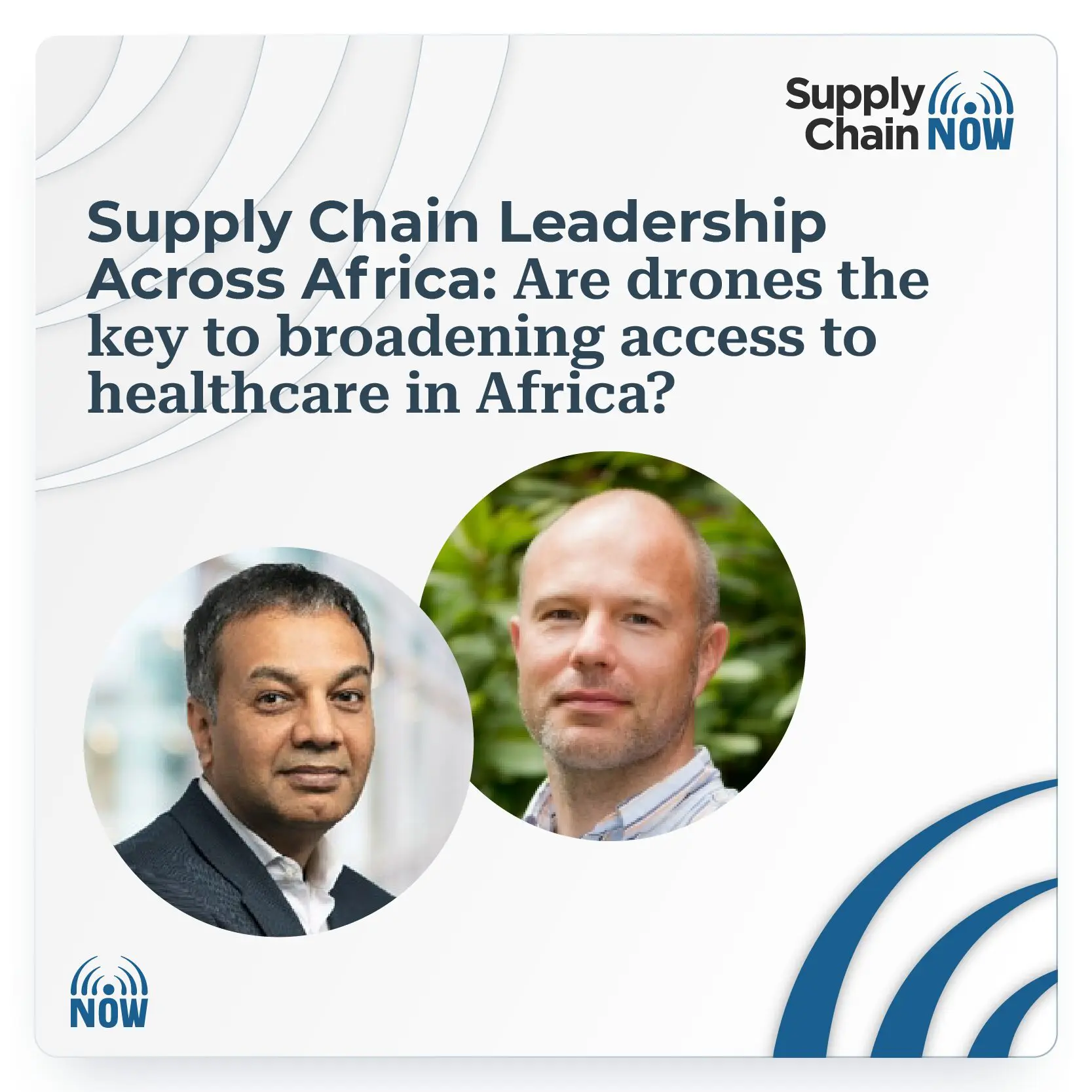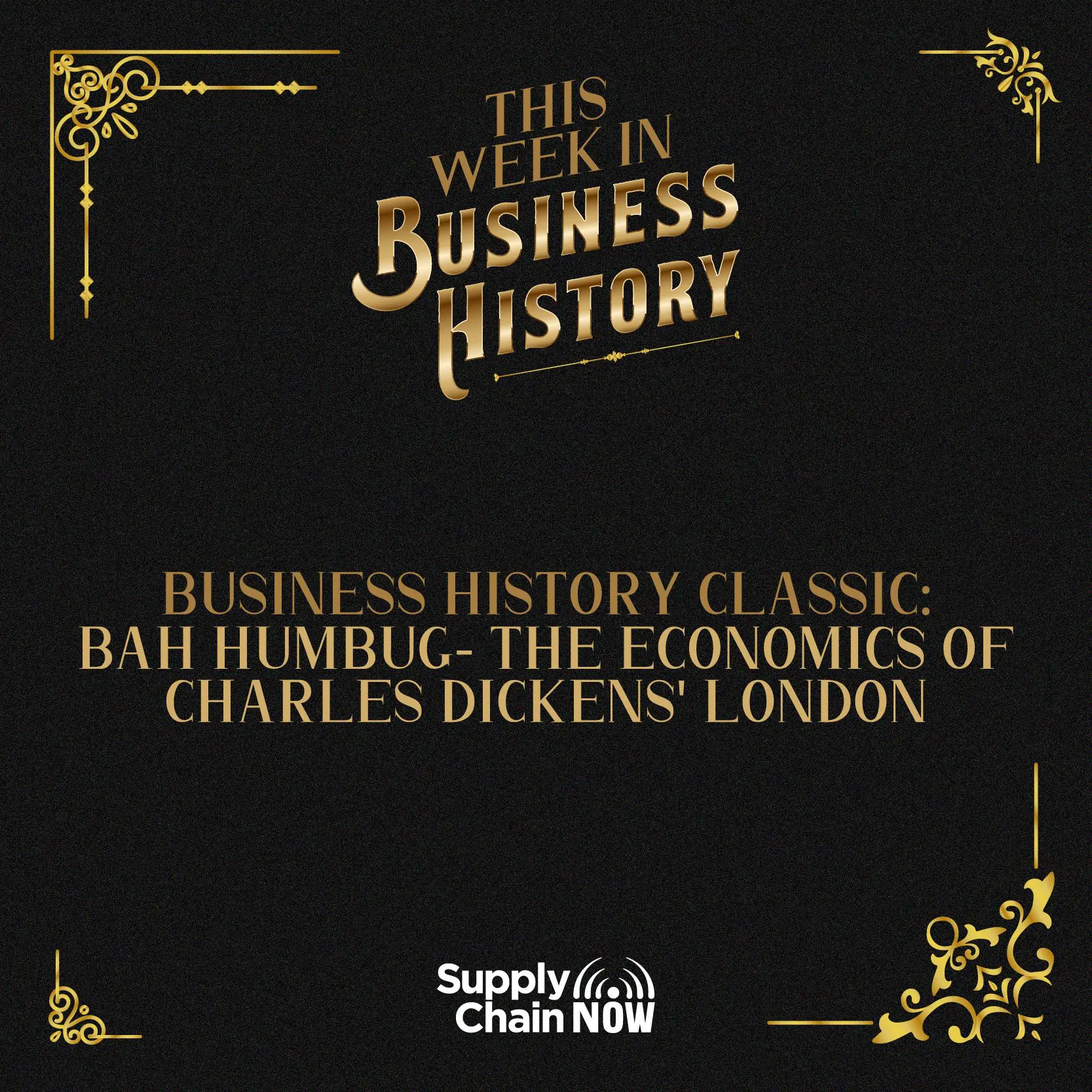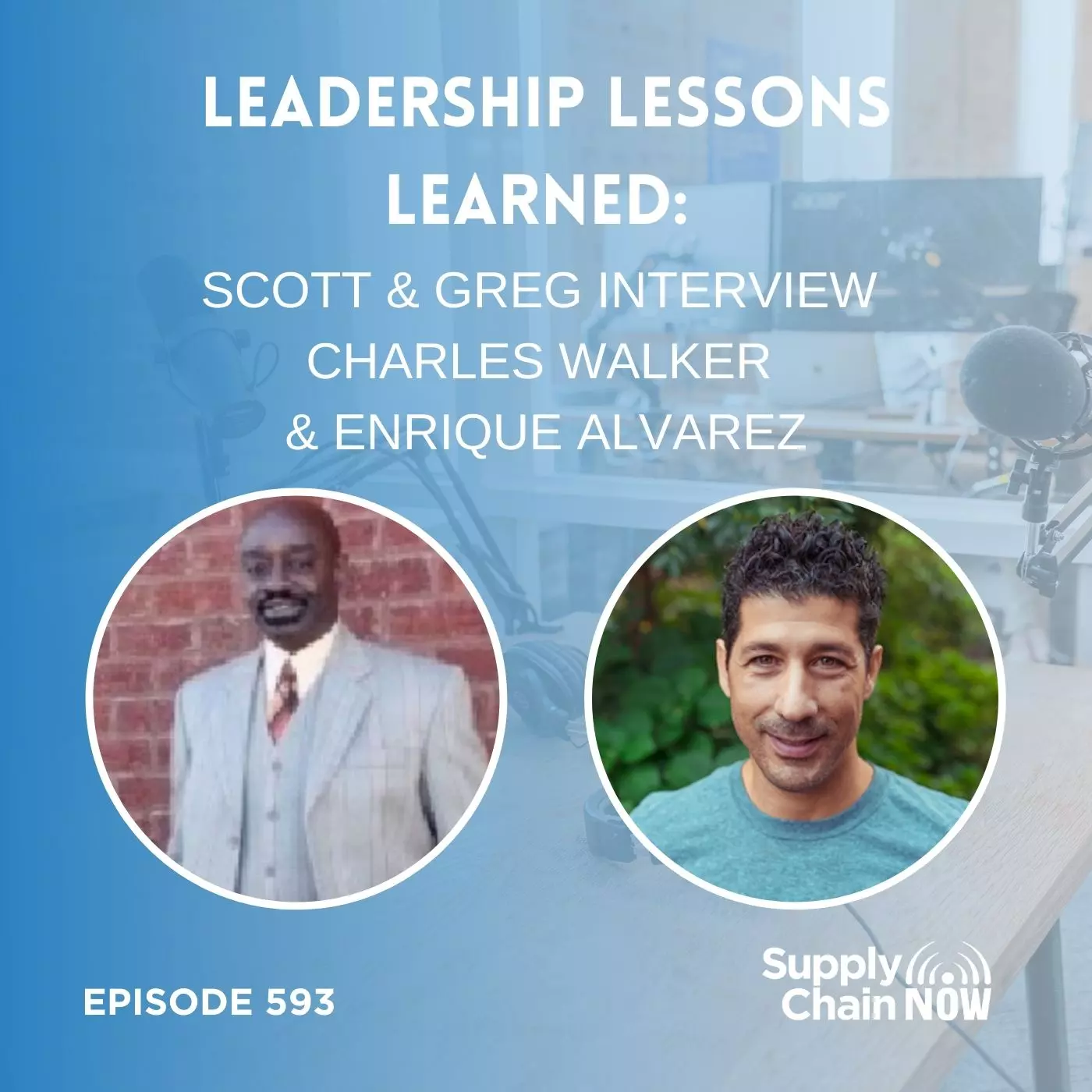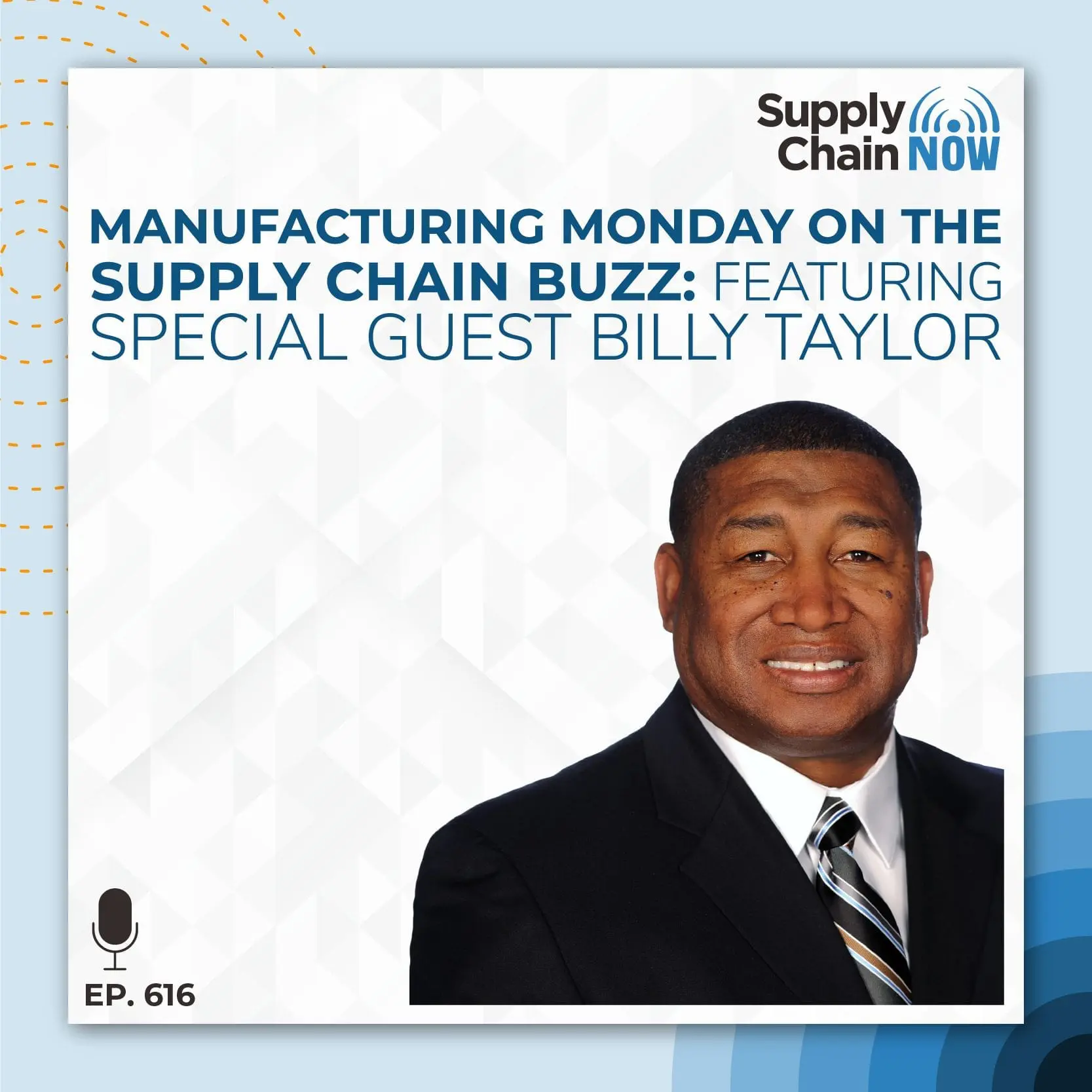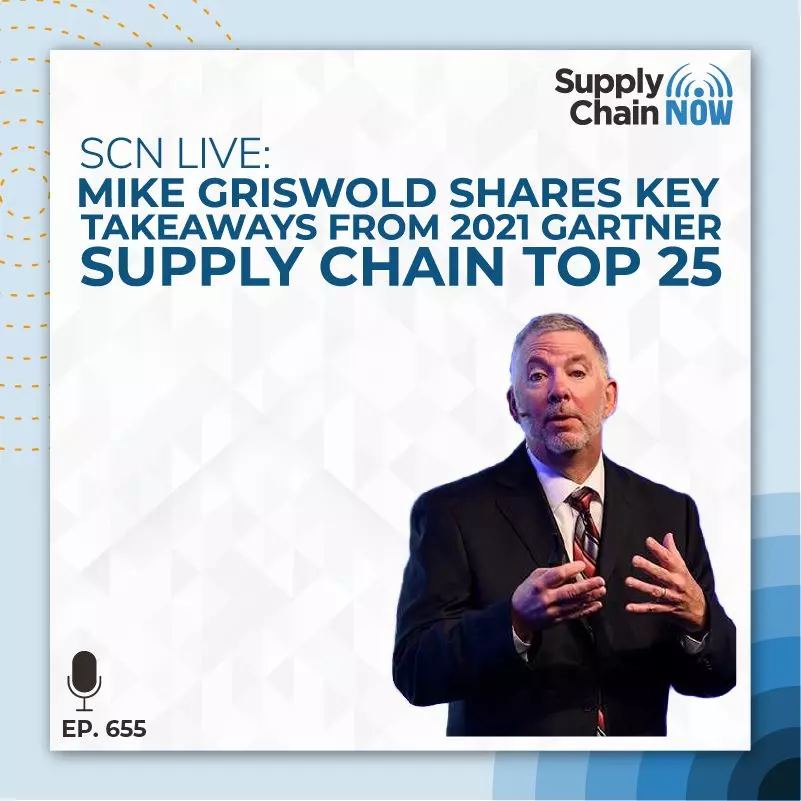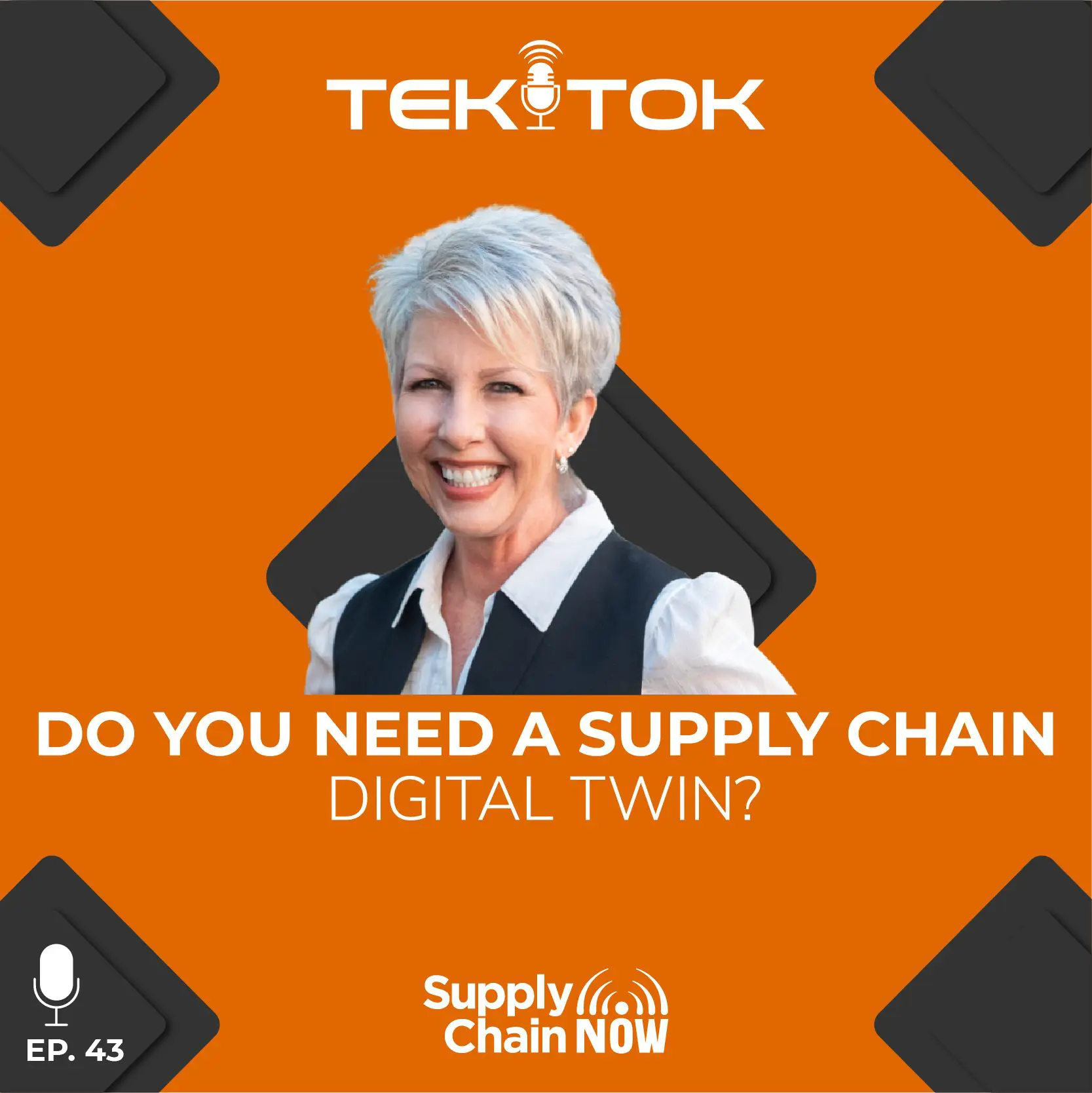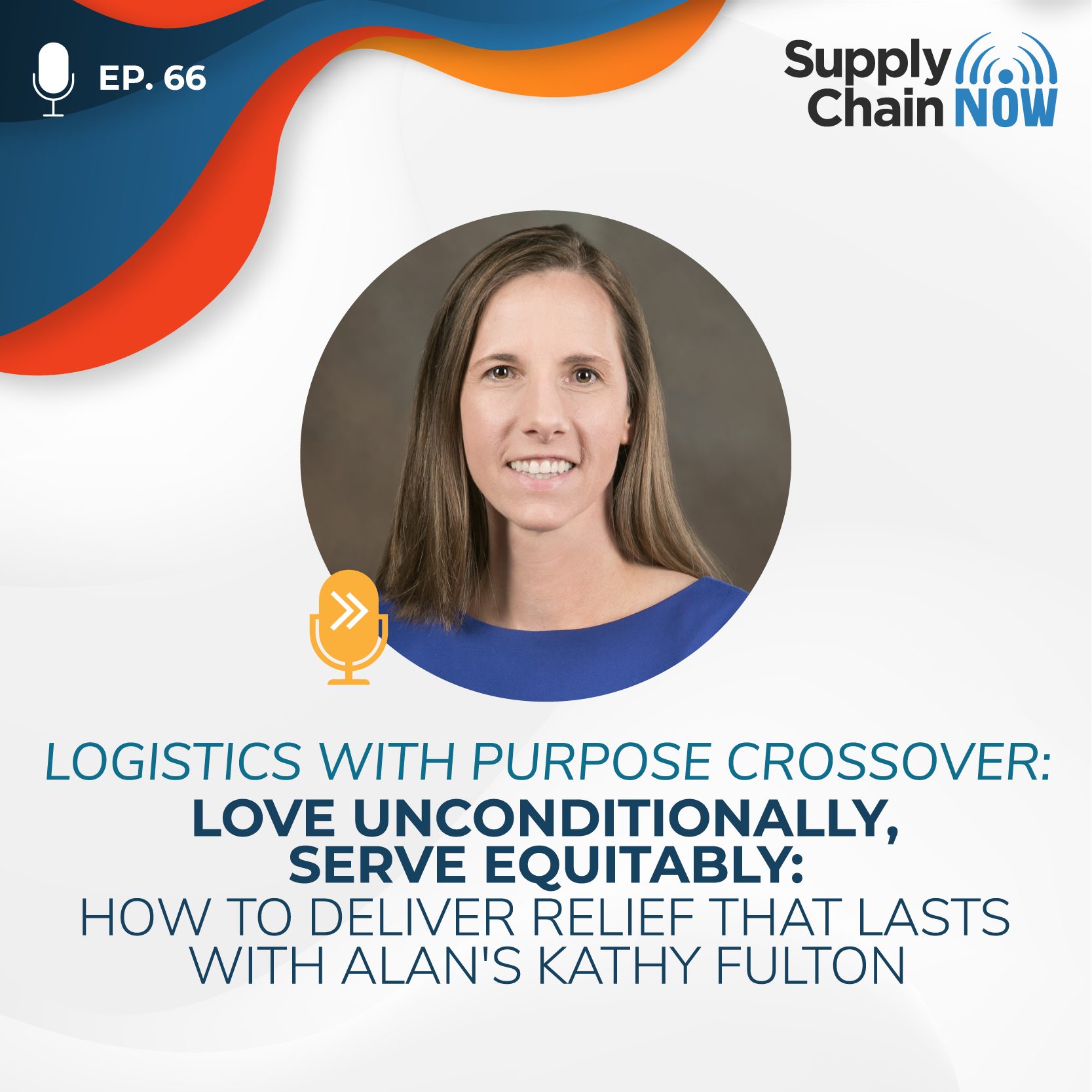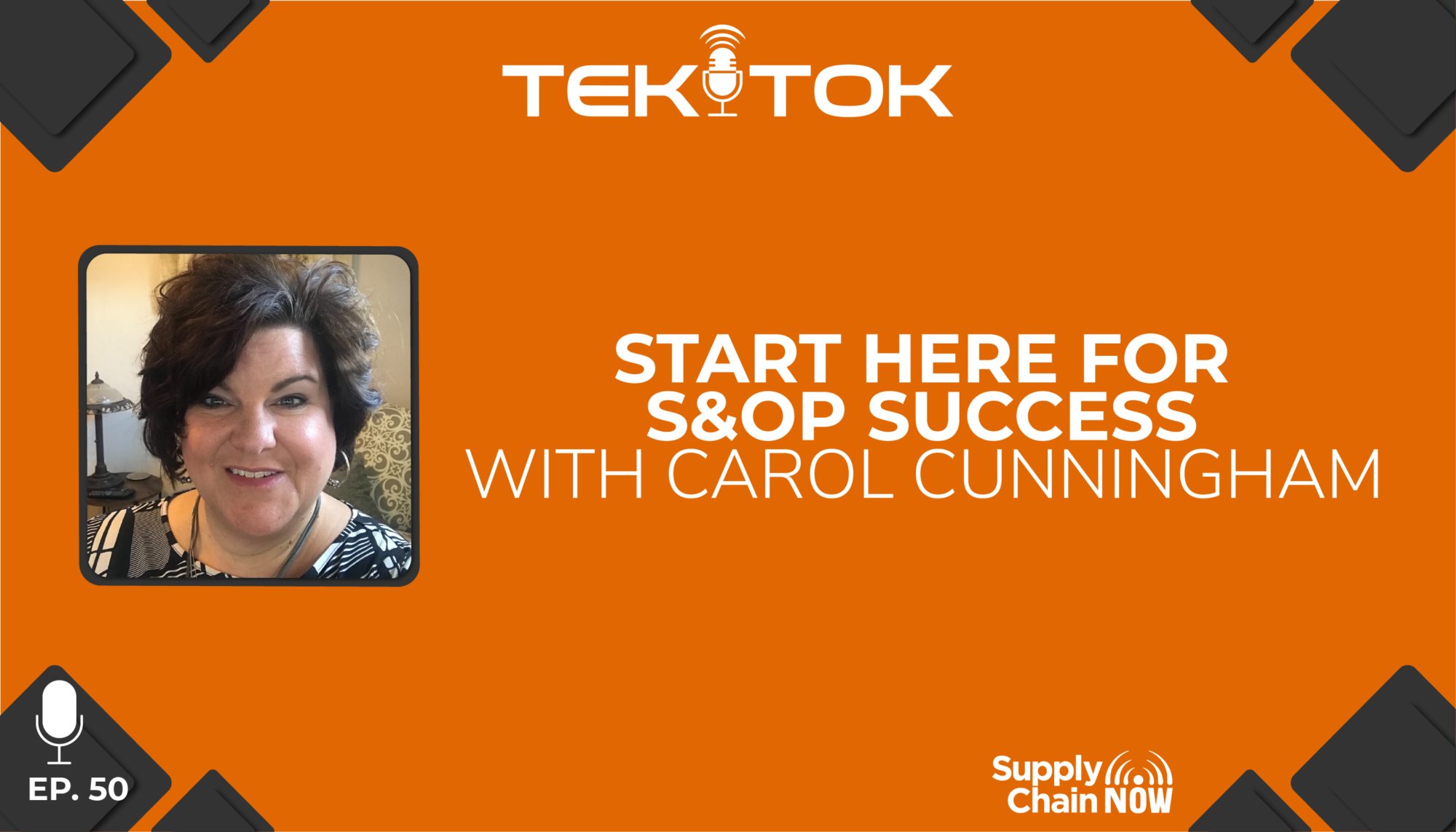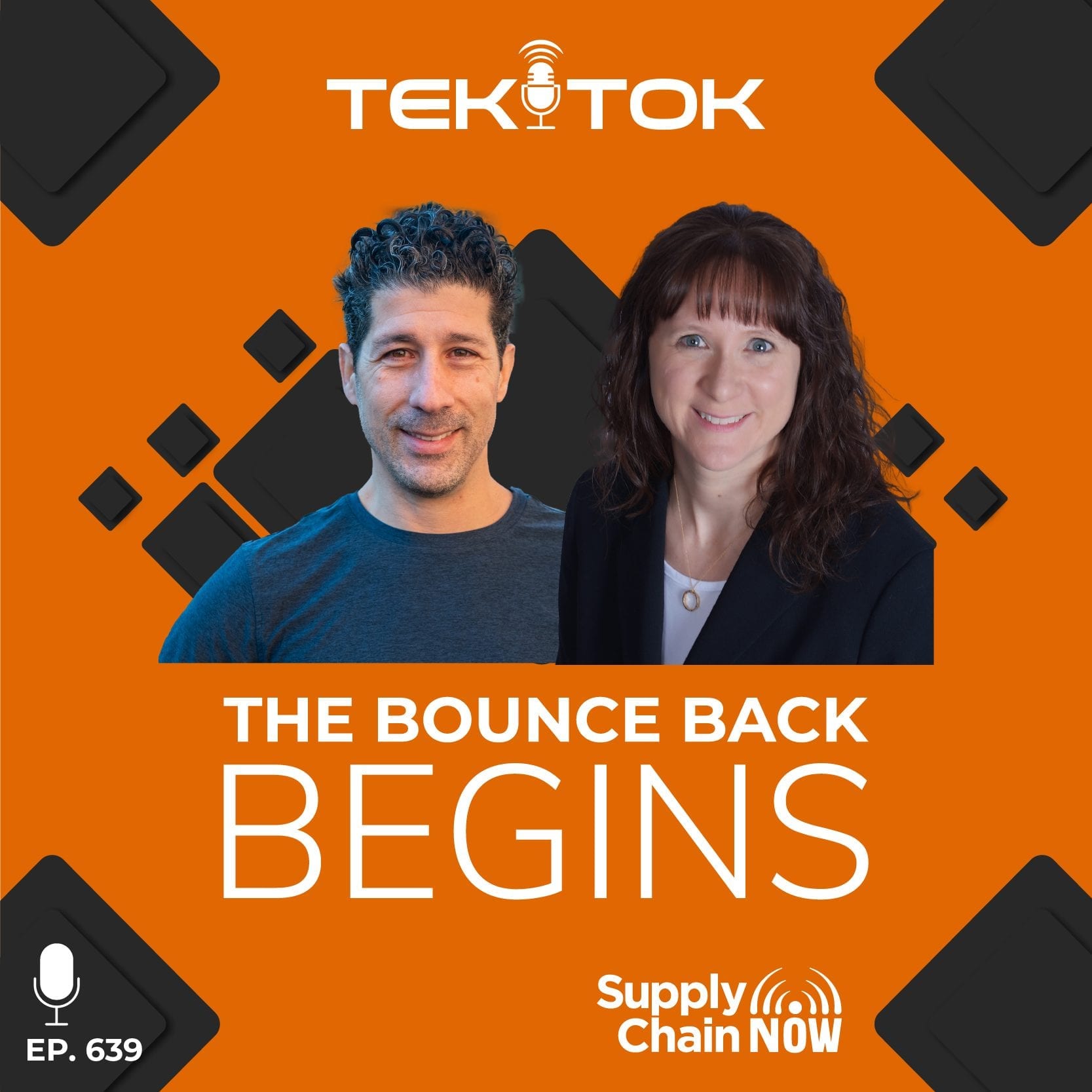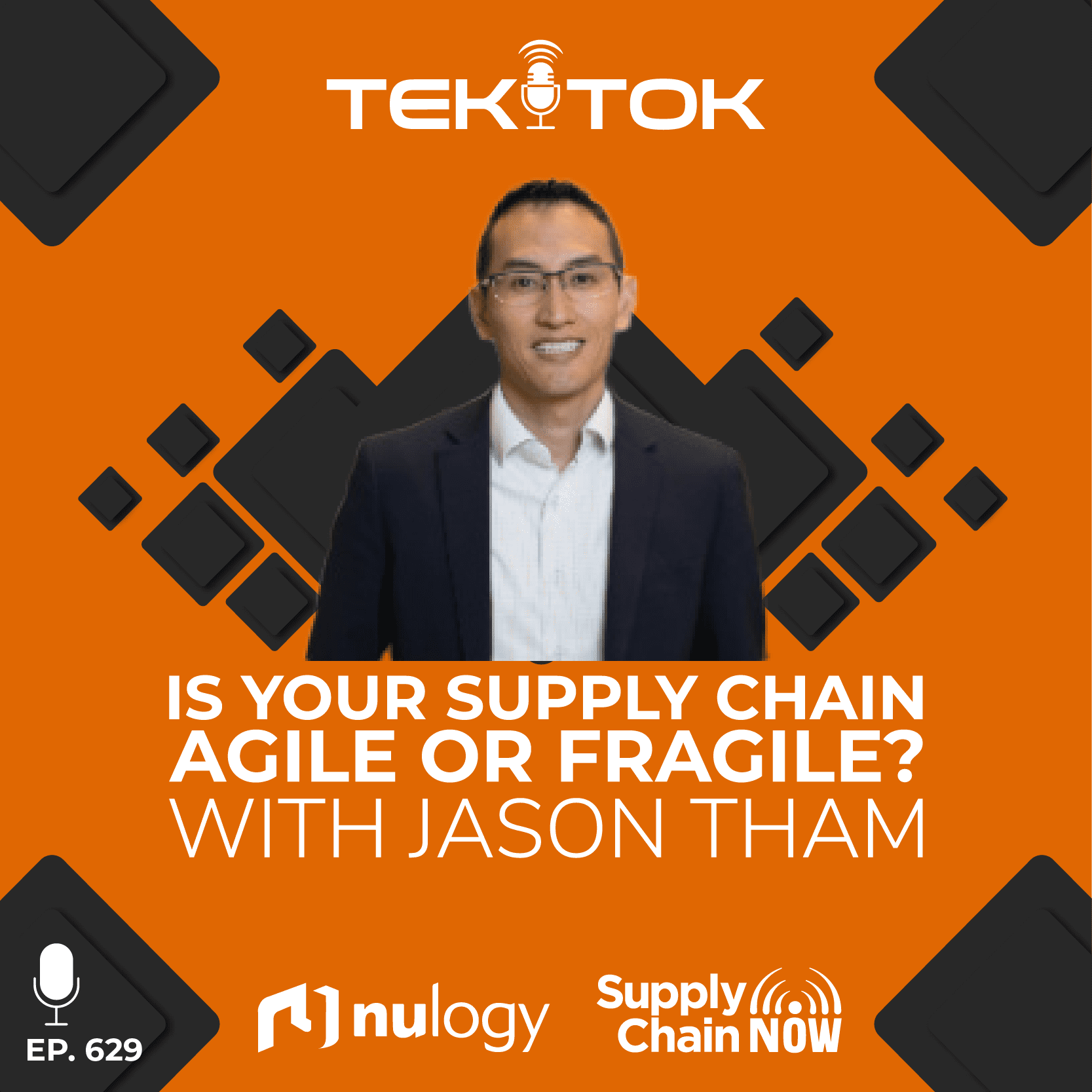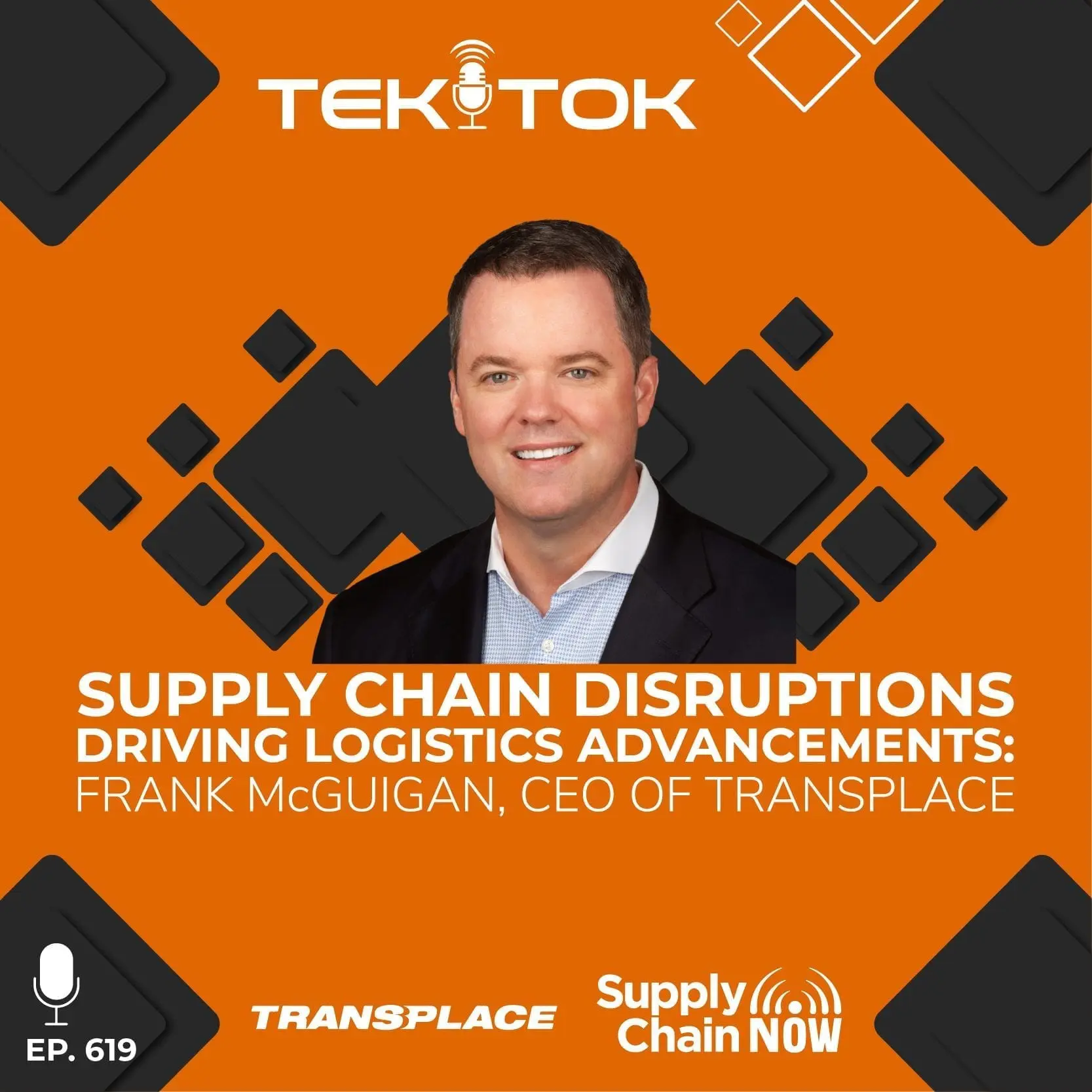I don't think there's a bad time to launch an S&OP initiative. And I think if you wait for the perfect time, you're not going to get it.
-Carol Cunningham
Episode Summary
Sales and Operations Planning (S&OP) consistently ranks as one of the top three priorities for management teams. A strong, repeatable S&OP process designed to accelerate and improve decision-making. It will help to synchronize strategic goals with operational activities and objectives. You can measure results in areas such as improving service levels, freeing up working capital, increasing forecast accuracy, reducing organizational friction, and boosting revenue growth. If S&OP is so pivotal to business success, why do many companies struggle to achieve the full benefits? This TEKTOK episode will explore where to start for S&OP success.
Episode Transcript
Intro/Outro (00:01):
Welcome to TEKTOK Digital Supply Chain Podcast, where we will help you eliminate the noise and focus on the information and inspiration that you need to transform your business, impact supply chain success, and enable you to replace risky inventory with valuable insights. Join your TEKTOK host, Karin Bursa, the 2020 Supply Chain Pro to Know of the Year. With more than 25 years of supply chain and technology expertise and the scars to prove it, Karin has the heart of a teacher and has helped nearly 1000 customers transform their businesses and tell their success stories. Join the conversation, share your insights, and learn how to harness technology innovations to drive tangible business results. Buckle up, it’s time for TEKTOK, powered by Supply Chain Now.
Karin Bursa (01:13):
Well, welcome back, supply chain movers and shakers. Karin Bursa here, your host for TEKTOK, where we are helping you replace risky inventory with valuable insights. Today I am joined by Carol Cunningham, who is the senior manager of sales and operations planning (S&OP) with Energizer Global Auto Care. Carol and I are going to talk about where to start to drive S&OP success. This is going to be interesting!
If you’re a fan of the show, please subscribe to TEKTOK and leave us a review. And, don’t forget to follow us on both LinkedIn and Twitter. Now, let’s talk about sales and operations planning. S&OP consistently ranks as one of the top three priorities for management teams. That’s right — top three priorities. And you’ll notice I said for management teams, not just supply chain teams. When S&OP is done well, it instills a repeatable process that to drive a number of advantages for your business.
Karin Bursa (02:20):
You’re going to achieve tangible benefits in areas like increased forecast accuracy, freeing up working capital, improving inventory turns, and boosting your customer service levels. And you’re going to see somethings like the ability to reduce friction in your organization and to drive overall revenue growth. Well, the list goes on. And I’m sure Carol will have a few new ideas for us as well.
I want you to consider strategic initiatives as part of your sales and operations planning process. So, think in terms of your commitments for environmental social governance (ESG) initiatives. If you’re looking at new sustainability programs, or launching new products into your product portfolio, or opening new regions or new sales channels. These are strategic business initiatives that can be supported and accelerated with a strong and resilient a S&OP process. But I’m getting ahead of myself because our discussion today is about how do I start and build a foundation for a successful sales and operations planning process. And today’s guest has been there and done it. In fact, Carol Cunningham has helped a number of companies implement sales and operations planning and gained momentum around their S&OP processes. Carol, thanks for joining us today on TEKTOK.
Carol Cunningham (04:02):
Happy to be here, Karin. Thank you.
Karin Bursa (04:04):
Carol, the first time you and I met years ago, we had an instant connection based on our mutual excitement about sales and operations planning. We are both very passionate about the benefits and the need for a strong S&OP process. You have had hands-on experience with S&OP in industries like consumer goods, healthcare, and industrial products. Those industries have very different demand and supply profiles, very different product velocity. So, I’m really excited to hear what you have to say to us today. I also want to make sure that our TEKTOK movers and shakers know that in addition to your experience as a practitioner, you are certified in the area of supply chain planning and S&OP. In fact, you are a certified instructor for APICS CSCP. So, you’ve been teaching many of these techniques and have valuable insights for us on where we should start and opportunities to drive a more successful S&OP process. Let’s start with the basics, Carol. How did you get started in S&OP?
Carol Cunningham (05:25):
It was a long and winding path that got me here. I started off in operations warehouse and distribution management. And honestly, it happened to be the first job I got. I was a history major. Thought I’d be a librarian and wear white gloves on my hands the rest of my life. That didn’t quite work out. So, I got into that field and, you know, operations, there’s a lot of excitement there. There’s a lot of energy, there’s a lot of learning. I got involved with APICS, now ASCM. I was able to get to the conference when the theme was S&OP. I had never heard of S&OP until then. And I remember sitting in a ballroom where Tom Wallace and Bob Stahl were speaking about S&OP. Karin, it was one of those moments I jokingly say, you know, the sky opened, the light shown down, the angels singing and it said, “Carol, this is for you!”
Carol Cunningham (06:17):
Because what I love about S&OP is you touch everything. It’s as much about people as it is about process and technology or anything else. And so, for me, that started my journey. I knew this is what I want to do. But remember, I was running warehouses and operations and traffic and, you know, I had DOT trucks and things like that. So, I maneuvered myself into the planning organization and became very annoying for the next two years telling everybody how much we needed S&OP. That’s where I got my nickname, the “S&OP Evangelist,” because I really believed in it. And so, eventually got the opportunity and it’s just been happening ever since. I’ve had many opportunities to take companies on that journey and that’s been a real privilege. I love it! It’s been a good thing for me.
Karin Bursa (07:05):
Well now, Bob Stahl and Tom Wallace, talk about building a strong foundation. They were early thought leaders in this area of sales and operations planning and help to make it more strategic, not just operational in nature. I’m a big fan of their work over many decades teaching the industry how to do more than just balance demand and supply.
Carol Cunningham (07:30):
Right.
Karin Bursa (07:31):
Let’s start with just a little inspiration. Can you share a quick example of where S&OP has provided tangible benefits or has been critical to boosting performance in a business?
Carol Cunningham (07:46):
There’s so many different ways and examples. What comes to mind first is, when you think about – S&OP is not a quick fix. It’s not a magic bullet. It takes time, right? But one of the first things you start to see is a positive impact on service to your customers. You have to keep that without bloating your inventory at the same time. So, being able to increase your OTIF (on time in full) to your customers, your case fill rate, whatever your metric is, while simultaneously keeping your days of inventory within target and not ballooning, that was the biggest win and the most rewarding immediate impact. For me personally, big wins come in how you’re breaking down the silo walls and people start to share and communicate better.
You know, the soft stuff is the hard stuff, and it’s just as important as the metric improvements. And then, especially with looking at case fill rate, the other part of that is minimizing that cost of poor quality and being able to not have as many fines. So, those were the first ones I thought of when thinking about the big hits that resonate well because they impact the bottom line. It’s a good proof of concept.
Karin Bursa (09:00):
Getting your team and organization focused on the customer is powerful. Everybody wants to serve the customer the customer well. However, they’re not always focused on doing it as profitably as the business would like, but the desire is there. Let’s be honest, we’ve both seen bad behaviors where different teams will hoard a little inventory here and there or boost the production quantity because they think they “know better than the planning systems.” But the goal in many of those situations is high service. So, I love that you started there and then talked about some of the other benefits as well. I think some of that experience you had in the warehouse fulfilling orders, left you with a hands on experiences that helped you get motivated around better planning.
Carol Cunningham (09:55):
Right. Exactly. That last minute rush at the last day of the month. Right?
Karin Bursa (09:59):
Exactly! Another bad behavior that many businesses are guilty of adopting. It’s no secret that business leaders have been drowning in an environment of uncertainty since COVID-19 increased complexity. Many have been re-evaluating their product portfolios to make better use of available capacity or navigating around some supply shortages. The bottom line is, we’ve been operating for almost three years in an environment that feels like relentless chaos. There are more variables than we’ve had in the past. Carol, why is now a good time to launch an S&OP initiative?
Carol Cunningham (10:47):
I don’t think there’s a bad time to launch an S&OP initiative. If you wait for the perfect time, you’re never going to get it. Exactly what you said, I think if companies had a well-established S&OP process before COVID happened, they might have had better ability to react to those changes and different patterns of demand. Now, nobody can predict black swan events. But that infrastructure being in place, that S&OP process being in place, that mindset being in place ahead of time helped a lot of companies get through more successfully. For right now, I would ask anyone who’s thinking about S&OP, what are you waiting for? There are good things to be gained. It’s not an easy thing but if you start and work in first with one product family, start out small if you need to. Your business is not going to get less complex.
Carol Cunningham (11:40):
It’s only going to get more complex. The world is smaller than it used to be, and those patterns of stability and where we thought we knew better than any type of algorithms or planning software that’s changed. And truthfully, it may take time for the statistical models to catch up, but you need to have that cross connection, that cross-functional collaboration that goes beyond what your data can tell you so that you can pull things out there and be transparent and be everything on the table. S&OP will give you a framework that can help you navigate that complexity.
Karin Bursa (12:21):
You said so many good things there. Number one, you talked about data and doing more with the data. I think people sometimes lose sight of the fact that S&OP is really architected to facilitate decision making. So, we’ve got to bring people to the table, your insights in the business process. And it is a process that we go through. Technology is certainly a critical enabler – especially now that we’ve got big data, new data sources, and different demand or market signals. When we look at that, it can be a little overwhelming to start with. Let’s step back from that and talk about just where do we start in general.
Carol Cunningham (13:12):
S&OP has to start with a mindset shift of how you run your business. You need to start with the “WHY.” You have to understand what it is you’re trying to do. It often starts off in supply chain because everybody thinks it’s about balancing supply and demand. If that’s all you get from it, sure you’re going to get some results, but you’re leaving so much on the table that you could gain from the process. So, I think you need to start with education. Education will give you an understanding of the full concept. You can bring some help in if you need to, send people to conferences or webinars, at least invest in the team to make sure everybody has a common understanding of what S&OP can do for the business. And then, put that mindset through and work on building that first. All of the other things are so important, but people have a tendency to jump right into the mechanics when we need to think about the foundational aspects first.
Karin Bursa (14:12):
I like your focus on the mindset because this becomes a business process, not a supply chain process. As a business process team, we need an understanding what the business goals and objectives. What are we trying to solve for? What is the strategic initiative for our business? Is it to gain market share? Is it a certain revenue number or increased profitability? That will inform the decision-making process, and we get better and better over time – kind of like building muscle memory.
Carol, one thing I see with companies that are starting their S&OP process is they get stuck inside a very tactical window. The research tells us that most successful S&OP processes focus on a planning horizon anywhere from 24 months up to 3 years (36 months) for a rolling period. What’s the typical planning horizon you’ve seen for S&OP?
Carol Cunningham (15:32):
It’s different depending on the industry. In my experience, consumer package goods seem to be a little more near-term focused. I don’t think anybody should be looking under three months. If under three months, that’s the tactical window where S&OE (sales and operations execution) is very effective. I think a minimum S&OP horizon is a rolling 12 months. That’s where I’ve seen the most success and the most comfort. Keep in mind, the further out you go beyond 12 months, the larger your assumptions become. And sometimes that’s a hard pill to swallow. Within that rolling 12 months, you’re just looking at the next season or the next quarter in line with where you are now. However, if you are in aerospace or a similar industry, 24 months is a minimum horizon.
Carol Cunningham (16:17):
So, it all depends. It’s more appropriate to say, ‘We’re not talking about this month. We’re not talking about next month.’ We’re not even, and not even just the fiscal year boundaries. Yes, you talk about those with S&OP because you want to make sure your financial stuff is included, but the window of S&OP needs to be going out further. It’s a rolling horizon. You want to make sure that you’re looking further out to anticipate potential problems, not just the known problems. If you stay in that short term, three to six months, you’re just solving what you know about.
Karin Bursa (16:57):
What you know about and typically inside that very short horizon. Even a frozen fence as far as being able to produce or procure more product. You’re firefighting. It is sales and operations execution (S&OE). It’s executing the plan that’s been in place. Yes, there is flexibility. You don’t have to be rigid about what the plan for a 90-day period. You need to be responsive to those short-term signals. But that is not S&OP. You’ll never get out of firefighting if you don’t focus on those longer horizons. I agree with your recommendation Carol to focus on at least a 12-month rolling horizon and I’d like to encourage our audience to strive for 18 or 24 months, because that allows them to get in front of the same season and plan for those more strategic business initiatives like growth, new products, new channels or even a shift in channel volume as you grow your business.
Carol Cunningham (18:18):
S&OP serves a great function or the bridge between strategic plans and tactical exeecution. So, it can’t be in the full zone of either. We’re not looking at three to five years in S&OP and we’re not looking at the first three months. We’re looking at that window of opportunity to make sure that those strategic initiatives are being executed the way we’ve wanted.
Karin Bursa (18:47):
One of the compelling reasons to leverage S&OP is the ability to evaluate multiple business scenarios, multiple ways that we can grow the business. There’s more than one good answer. It’s a good strategy to look at multiple scenarios, compare them, understand the tradeoffs on how we get the results we want based on where we are today. And I want to stress that S&OP is in fact about making decisions. Making informed decisions. In a recent conversation with a chief supply chain officer (CSCO) told me, “Look, S&OP drains the emotion out of our meetings, and it increases our confidence as the executive team that’s making decisions.” When I asked him, “Tell me more about that.” He said, “First of all, we’re making fact-based decisions that we then apply our insights and business expertise to. We may even add a little of our own intuition, but we are able to start with the facts versus starting with the emotion.”
Karin Bursa (20:02):
Now, I love that. But what I hear quite often is that a lot of S&OP initiatives struggle for two big reasons. The first is lack of executive sponsorship. And the second struggle I often hear, is that “we have a culture that is resistant to change.” Carol, how do we get stakeholders excited, engaged, and focused on customer service as well as making better decisions faster?
Carol Cunningham (20:50):
That is key. Executive sponsorship is absolutely essential to success. You can’t handle culture issues unless you’ve got the support of leadership because they set the tone. They’re leaders for a reason. If everyone understands this is an executive S&OP process, not (limited to) a supply chain S&OP process, there are compelling reasons for people to give it some serious weight, right? So, you’ve got that first, but then change management part of it is key. If you start with clear education and understanding of WHY and make a compelling case using case studies to help people understand what good looks like for S&OP then you have to personalize success.
Carol Cunningham (21:46):
I found myself going around to different groups to uncover their number one issue, concern, or what gives them heartburn. How can S&OP can help them? How do I demonstrate that? I mostly ran into resistance from salespeople that felt they didn’t have time to be engaged in S&OP. They often believe giving you the customer forecast is all they must contribute. I met with one sales executive and said, “Look, you want to make your number? I’m your best friend. I’m going to make sure that we take care of things in a way that is going to increase your sales and at the same time we’re going to hit our inventory goals. We’re not going to have stockouts. If you collaborate with me on S&OP, I promise you that we’re going to help you make your goal.”
Carol Cunningham (22:47):
I went to finance and said, “I we can get everybody engaged in S&OP and we understand what our financial targets are, everybody will have ownership and they’ll want to be part of it.” We wanted to make S&OP the coolest place to be in a company. This is where real stuff gets done and it’s exciting! So, it’s full facilitation and thinking about where the pain points are, doing some research within your organization and making a compelling business case. It takes time but it’s worth it.
Karin Bursa (23:21):
It does take time in part because as you get started, you may be fixing problems that may have been longstanding challenges for the organization. Unfortunately, we can’t wave a magic wand and have it all go away in 90 days. It takes time to build muscle memory. Carol, S&OP is often led from the supply chain but it’s not just a supply chain planning process. It is a total business planning process. You mentioned sales and you mentioned finance. Certainly, new product innovation is part of S&OP as well. But when we think of S&OP, where does it belong in the organization?
Carol Cunningham (24:16):
It often starts in supply chain to balance demand and supply, but that’s just the starting point. It really needs to come out to be independent. This is what I would recommend. I like the fact that it could be a group of folks that have cross-functional, are able to work with every group, understand their perspective, understand what they could bring to the table, understand how that impacts the rest, but then also be able to challenge one another on assumptions without prejudice. If you’re independent, you don’t have a horse in any one race. Any of that natural functional bias can be mitigated. I know we’re a long way from that. Most companies will lead S&OP from supply chain, but it doesn’t have to be deeply embedded in supply chain.
Carol Cunningham (25:11):
I also strongly believe that you cannot make S&OP another project on somebody already very full plate. This is not a project. This is a full-time role. And if you give somebody too much to do – it’s like 2-in-1 shampoo, right? You don’t get the full benefit of either the cleanser or the conditioner. So, don’t create 2-in-1 shampoo in the role of S&OP. You want to really make sure that you have somebody that is dedicated to running the process. S&OP includes a lot of administrative work as well as a process facilitator that can do the research and work cross-functionally and bring people together and ask the right questions. So, I don’t think supply chain is where it should stay. It should not be in sales either. Some organizations have it under finance, but in my perfect world, it exists separately probably under the wing of the chief supply chain officer (CSCO) who has that triangle for cash, cost, and service.
Karin Bursa (26:12):
I agree that S&OP is in the CCOs span of management, but that doesn’t mean the CSCO is the only executive engaged in it. Occasionally, I do see it reside in finance from, but then S&OP tends to be more focused on areas like working capital or inventory turns, and little less on overall service or operational performance. That’s one caution I would offer. Although I’ll take a CIO or CFO that is really embracing all of the elements of the business.
Karin Bursa (27:02):
Sometimes I see it get pigeonholed in demand planning because there’s a belief that demand forecast accuracy is a critical driver. I agree forecast accuracy is a lever for the business, but it is not the only measure for the business process. What qualities and skills should we look for in an S&OP leader? I think a strong understanding of the business as well as being supply chain savvy around critical constraints are two important skills. But they must have something special…they have to be good collaborators and good communicators because they are helping to tell a story about the business. Carol, what do you look for in an S&OP leader?
Carol Cunningham (28:11):
I agree that that’s a very pivotal role. Sometimes people who have been deeply embedded in a business for a very long time don’t have an the perspective beyond what they know. So, sometimes you might have to bring it in. I’m not saying that’s always the case, but there are benefits to that. I mean, you bring some up who knows your business, that’s great, but they must be able to think beyond what’s been done in the past. So, I think establishing credibility is extremely important and that can be achieved with experience; certifications are a great way to show that too and a bit of understanding of what S&OP can bring to the company. Other qualities would be, they have to be intellectually curious. You know, you can’t take the pat answer or the easy assumption.
You have to be willing to think, but why and what if we did this? And what does that mean and how does that impact this other area? If you think about it, you’re dealing with people in very functional areas and experience, depending upon your organization and your culture. So, the S&OP leader’s role is to connect the dots between those and be able to say, you know, well this – okay, this is really good for the plant, this is really good for this, but what would be the impact on absorption and in the finance? And what else do we need to be thinking about? What is that going to do for space in the warehouse? What’s that going to do for service, or whatever it could be?
Carol Cunningham (29:38):
And so, good end-to-end supply chain knowledge, credibility through education, and they’ve got to be very organized because there is a lot of administrative work. You are literally herding cats sometimes to make sure everybody is doing what they need to do because to them, S&OP may be a sideline. To you, it’s your main line, right? You’ve got to make sure people are engaged and things are getting done on time and that the monthly cycles are set, and meeting cadences are adhered to. I also run a process governance committee. So, we meet quarterly to effectively measure the process itself.
I would also recommend that it’s somebody who has a thick skin. Because sometimes you’re putting a microscope or a spotlight on things that get uncomfortable sometimes. The genius of S&OP is that it brings transparency, openness, accountability, and collaboration to the business. You have to be willing to put the moose on the table as Tom Wallace always said. So, someone who can bring that up in a way that’s effective, not confrontational. A lot of soft skills and emotional intelligence are needed.
Karin Bursa (30:54):
Those are some great examples and attributes for a leader anywhere. But it really underscores this need to develop soft skills. I think you made a comment when we started our conversation about “the soft stuff is the hard stuff.” It’s hard to assess when you’re interviewing somebody. It’s hard, or difficult is probably a better word, because all of the different personalities that are involved in the process. And I also think you need an ability to absorb criticism or critique of the process. And that doesn’t mean that as a leader that you’re failing or that the process is going to fail. It oftentimes means that there’s a lack of understanding of why something is important. Carol, what has been effective for you when you’ve had pushback or resistance to the rollout of an S&OP process?
Carol Cunningham (31:55):
You’re going to run into it. So, understand that it’s normal. It’s not about you. And what you’re dealing with is different people’s ability or the timing of when they’re going to absorb everything that is involved. The first thing for me is to remember it’s not personal. Number two, you need to talk with them. Find a way one-on-one and listen to what they have to say. Just ask, “I’m sensing some resistance. Is it just that timing of the meeting is bad? Or, is something else going on? Or, is there a concern you have that I can help you with?” And if I don’t have the answer, I’ll find an answer or do the needed research.
Carol Cunningham (32:48):
You must find out what that concern is. I’m also big on proof of concept too. How can we show a quick win in an area that matters to them? Even if it’s just here we have this topic that’s been of great concern to you, we now have a full dissection of it almost within S&OP, showing every angle, everything, and we have a great dialogue about it, that they have been trying to get people to engage in for some time and getting, you know, feel like they’ve been beating their head against a wall. You know? Or say, “I’m going to champion this topic with you, let’s work together. Let’s get this into S&OP.” And I think sometimes it’s just as simple as working on the communication.
Karin Bursa (33:35):
I really agree with you. And that they have an understanding that we’re not trying to find fault with them. We’re trying to build a resilient process that serves their business needs and the broader needs of the company as well. Often, the critique isn’t necessarily about the person leading the S&OP process, it is an opportunity to either explain how the process works, because not everybody in the company understands, even when we say something simple like balancing supply and demand, they don’t necessarily understand the complexities in balancing supply and demand. After COVID, we’ve got more businesspeople that are in tune with supply chain challenges than ever before. So, it’s a great time to take advantage of that and just bring them along from an education perspective. Given my 25 plus years in supply chain technology, I can tell you technology alone is not the answer. The technology to support S&OP is absolutely critical, and it can reduce some of the complexity and boost numerous insights. But I find that most S&OP processes get started on spreadsheets. Has that been your experience?
Carol Cunningham (35:08):
Yes, to start off, but then I was also fortunate enough to make a good case to get us into planning software pretty quickly. As I’ve moved into other companies, technology has been one of the first things I made a case for it. And I likened it to this way, if your job is to go cut down a tree and I hand you a butter knife, you’re going to be able to eventually cut down that tree. It’s sharp, it cuts things, but it’s not the right tool for that result. But if I hand you a chainsaw, you’re going to be able to cut the tree faster. If you start S&OP on spreadsheets, you’re going to be limited to a certain degree unless you have amazing master data and a small organization that’s not that complex. So, technology quickly becomes a critical enabler of S&OP success.
Carol Cunningham (35:52):
Technology is one of the most important tools — you cannot sustain S&OP and do scenario modeling which is one of the key functions in spreadsheets. How sophisticated can you get on a spreadsheet with any accuracy or reliability? You know, one little fat finger mistake and you’ve blown the formula. So, I would advocate that at some point you’re going to need to make sure your technology is enabling your S&OP process. It is a game changer! An absolute game changer because you gain visibility, graphics, great analytics, you know, just a couple of clicks and be able to say, “Well, what if this happened?” “Boom, boom, boom, here it is.” And there’s lots of solutions out there that could do that for a company at various price points and levels of investment. The technology piece of S&OP is very important.
Karin Bursa (36:55):
I do certainly agree with you to have a resilient and repeatable process, you’re going to need to make a move away from spreadsheets quickly. I also find, Carol, that spreadsheets frequently introduce new risks. You made the comment about ‘fat finger errors’ on a cell or on one of the equations that we’re using. It doesn’t take much to introduce additional risk into your process. I hear an argument from time to time that planners are familiar with and know how to use Excel, that they’ll be able to do this very quickly.
Karin Bursa (37:55):
However, the risk that gets introduced far outweighs that familiarity. And S&OP is a complex process. It is a process that supports evaluating multiple business scenarios. I love the example you just gave about being able to visualize and very quickly understand and compare plans. There are solutions in the market for all levels of complexity or business size that can be considered. Great insights, Carol. If you and I agree that S&OP is pivotal to business success, why do so many companies just struggle achieve the full benefits of an S&OP process?
Carol Cunningham (38:46):
I think number one, they don’t have a dedicated S&OP leader. I think that’s the first part. It’s somebody else’s project and/or a hat they wear once a month. You’re not going to get very far with that. Number two, I would think that you have not done enough education. I can’t emphasize the importance of education to help everyone understand the objectives, how the process works, what good looks like, and the fact that it is going to be a journey, it’s not an event. We’re not going to launch S&OP and suddenly be done working on S&OP. It’s an ongoing journey and part of mindset shift I mentioned. Sometimes they get stuck because their scope is too small, whether that’s literal on what horizon they’re looking at or the outcomes they want to achieve from it. They’re not brought in new product development or innovation, or they’ve not brought in more of the financial aspects, you know. So, I think if you get stuck, it’s because you’re thinking too small probably, and not doing enough growth throughout the process.
Karin Bursa (39:56):
I like your recommendation to start with an area that will offer a quick win that is meaningful to the business. We want to feel the tangible outcome of the effort. We want to be able to either see a change in process or inventory performance or service that’s tangible. Those stories can help engaged business leaders into heroes! As leaders make important decisions more effectively for the business, it gets them excited and builds momentum.
Carol, I’ve really enjoyed the conversation today, and I could keep going. I know you could too. What final piece of advice do you have for our TEKTOK listeners who are looking at starting or improving their S&OP process?
Carol Cunningham (40:58):
I would say first the piece of advice is to research, get involved in professional organizations such as ASCM, IBF, etc. There’s such a wealth of shared knowledge out there. You’re not in it alone. And connect with peers and other practitioners. It has saved me from going down so many bad roads. Lean on your community, lean on other resources like this TEKTOK podcast, or webinars and conferences. Do the education part first and be patient. The S&OP effort is worth it in the long run. Just keep going forward.
Karin Bursa (41:33):
Great recommendations. And thanks so much for sharing your expertise with us here today. I know that we’ve just started to scratch the surface and I appreciate you boiling it down for us. Carol, how can our listeners reach out to you and connect?
Carol Cunningham (41:48):
I am on LinkedIn, www.linkedin.com/passionateaboutplanning.
Karin Bursa (41:56):
Oh, look at you. Passionate about planning. Nicely done. Carol Cunningham, thank you so much for sharing your insights on sales and operations planning with us today and helping us to make sure our S&OP initiatives are more successful because it does add up.
Carol Cunningham (42:14):
Thank you.
Karin Bursa (42:14):
Until next time. Remember that our goal with TEKTOK, the digital supply chain podcast, is to help you eliminate the noise and focus in on the information and inspiration you need to transform your business and replace risky inventory with valuable insights. If you’re a fan of the show, don’t forget to leave us a review and subscribe. And thanks for tuning in to TEKTOK, powered by Supply Chain Now.
Featured Guests
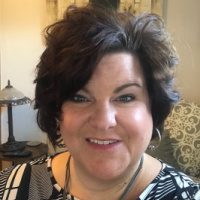
Carol Cunningham, After graduating with a degree in History and Political Science, Carol took a job in operations to pay the rent. Within a year she had fallen in love with the field and never looked back. She has over 20 years of supply chain management experience including distribution, logistics, inventory management, business analytics, demand planning, forecasting, and her great passion S&OP. She was CPF certified by IBF in 2019, CSCP certified by ASCM in 2012, CS&OP certified by the S&OP Institute and The Ohio State University Fisher College of Business in 2014. Currently, she is the Sr Manager of S&OP for Energizer Global Auto Care. Connect with Carol on LinkedIn.
